
- Blockchain Council
- May 10, 2024
Summary
- AI-driven search engines revolutionize the developer landscape by enhancing efficiency and relevance.
- GitHub, a platform benefiting from AI search, saw a surge in users from 3 million in 2013 to 100 million in 2023.
- AI’s influence expands into conceptual design, smaller devices, and multi-modal applications in 2024.
- Automated machine learning (AutoML) reduces costs and time-to-market, making AI tools more accessible.
- AI search engines use NLP, ML, neural networks, vector search, and neural search for advanced capabilities.
- Historical milestones include the Perceptron in 1957, ELIZA in 1965, and DeepMind’s AI in 2014.
- AI transforms search with enhanced results, voice-activated search, personalized recommendations, and more.
- Key features of AI search engines include advanced algorithms, personalization, and integration capabilities.
- Benefits for developers include enhanced accuracy, automation of tasks, bug resolution, and skill enhancement.
- Leading AI search engines include Phind, Google Search Labs, YouCode, RIX by Hashnode, and Sourcegraph.
- Integrating AI search engines involves steps like choosing the right engine, setup, integration, and customization.
- Consider being certified by the Blockchain Council to make the most of AI-powered search engines.
- The landscape of AI-based search engines is expected to thrive with innovation and potential in 2024.
- AI search engines act as catalysts for innovation and productivity, redefining how developers interact with technology.
In the dynamic realm of technology, the surge of Artificial Intelligence (AI) has revolutionized the search engine landscape, particularly for developers. With an emphasis on efficiency and relevance, AI-driven search engines have become vital tools, empowering programmers to swiftly pinpoint precise code fragments and problem-solving solutions. These engines demonstrate a deep understanding of coding languages and contextual nuances, thus streamlining the coding process and ensuring developers stay current with the latest techniques and insights.
The significance of this technological leap is underscored by a remarkable statistic from Statista, which shows that the number of developers using GitHub, a key platform that benefits from AI search enhancements, skyrocketed from 3 million in 2013 to an astounding 100 million in 2023. This growth highlights the increasing reliance on and trust in AI-enhanced tools among the developer community.
Moreover, in 2024, the field of AI is set to branch into new domains such as conceptual design, smaller devices, and multi-modal applications, showcasing its expansive influence across industries. Notably, advancements in automated machine learning (AutoML) are streamlining processes like data labeling and tuning of neural network models, thereby reducing costs and time-to-market for new solutions. This trend indicates a shift towards more accessible and efficient AI tools, which is particularly relevant for developers seeking quick and innovative solutions.
In this article, we will break down the concept of AI search engine for developers. By the end of this article, you will also learn how to integrate an AI search engine to existing systems. So, let’s start!
Understanding AI Search Engines
Definition and Technical Aspects
AI search engines represent a significant evolution in search technology. Unlike traditional search engines, AI-driven engines utilize advanced Natural Language Processing (NLP) and Machine Learning (ML) to deliver more accurate, relevant, and personalized search results. They analyze and summarize vast internet data, providing users with direct answers and customized content based on their behavior and preferences.
The technological backbone of AI search engines comprises several key components that distinguish them from traditional search engines:
- Natural Language Processing (NLP): This technology allows AI search engines to understand and interpret human language in a way that mimics human understanding. NLP involves various sub-processes like speech recognition, sentiment analysis, and language translation, enabling these engines to comprehend queries more accurately and contextually.
- Machine Learning (ML): AI search engines use ML algorithms to continually learn and improve from user interactions. These algorithms analyze search patterns, preferences, and behaviors, adapting over time to provide more personalized and relevant search results.
- Neural Networks: Employed for deep learning, neural networks in AI search engines enable the processing and understanding of complex queries. They are instrumental in recognizing patterns and nuances in large datasets, which traditional search algorithms might overlook.
- Vector Search and Neural Search: These advanced search techniques are increasingly being integrated into AI search engines. Vector search, for instance, is essential for handling large volumes of text data, while neural search (or neural matching) helps in understanding the deeper meanings and contexts of search queries.
These technological components collectively form the core of AI search engines, enabling them to deliver a more advanced, intuitive, and user-friendly search experience.
The evolution of AI in search engines has been a journey of significant technological advancements, reshaping the way we interact with and utilize search capabilities. This evolution is integral to understanding the best AI search engines for developers, as it highlights how AI has transformed search functionalities, offering enhanced capabilities and new possibilities.
Historical Development and Key Milestones
The history of AI has seen numerous milestones that have contributed to the development of AI search engines:
- 1957: The introduction of the Perceptron, a single-layer neural network by Frank Rosenblatt, laid the groundwork for neural networks and machine learning, essential components of modern AI search engines.
- 1965: ELIZA, developed at MIT, became an early example of natural language processing, showcasing the potential for human-like interactions with computers.
- 1987: The resurgence of the backpropagation algorithm reinvigorated neural network research, paving the way for advancements in AI search technologies.
- 1992: Reinforcement learning gained recognition, contributing to advancements in autonomous decision-making, a concept applicable in refining search algorithms.
- 1996: IBM’s Deep Blue’s chess match against Garry Kasparov demonstrated AI’s potential in strategic thinking and problem-solving, skills crucial for developing sophisticated search engines.
- 2005: Stanford’s autonomous vehicle, Stanley, winning the DARPA Challenge, highlighted the potential of AI in navigation and contextual understanding, components relevant in search engine development.
- 2014: DeepMind’s AI playing Atari games at superhuman levels illustrated deep reinforcement learning’s capabilities, applicable in optimizing search engine algorithms.
- 2019: The release of OpenAI’s GPT-2 and its advancements in text generation marked a significant step in understanding and generating human-like text, a key feature in modern AI search engines.
Transformation of Search Capabilities by AI
AI has fundamentally altered search engine capabilities in several ways:
- Enhanced Search Results: AI has enabled search engines to deliver more relevant and personalized search results by understanding the context, intent, and semantics behind user queries. Natural Language Processing (NLP) techniques have been pivotal in comprehending the meaning of search queries, thus providing more accurate results.
- Voice-Activated Search: The rise of AI-driven voice assistants like Siri and Google Assistant has transformed search interaction, allowing for hands-free searches using natural language and understanding spoken queries.
- Personalized Recommendations: AI-powered search engines use machine learning algorithms to analyze user behavior and preferences, offering personalized suggestions and content that align with individual user needs.
- Visual and Image Search: AI’s integration into search engines has revolutionized visual search capabilities, enabling search engines to understand and analyze images, thus allowing users to search using pictures.
- Real-Time and Contextual Search: AI algorithms process and analyze information in real-time, providing up-to-date and relevant search results while considering user location, preferences, and previous interactions for more personalized results.
- Conversational Search: Advancements in NLP have led to conversational search capabilities, allowing users to engage in more interactive and conversational search experiences, including asking follow-up questions and receiving clarifications.
Key Features of AI Search Engines
Advanced Search Algorithms
AI search engines utilize advanced algorithms that understand the nuances of human language and analyze behavioral data like past purchases and searches. This helps in delivering accurate and relevant results, enhancing the user experience.
Personalization and Contextual Understanding
AI search engines use Natural Language Processing (NLP) to interpret semantics and contextual meaning, determining the intent behind search queries. This leads to personalized search results, a key feature as nearly 70% of consumers are more likely to make a purchase when search results are personalized.
Integration Capabilities with Other Software and Platforms
The ability of AI search engines to integrate with various applications and platforms is crucial for developers. This integration facilitates a cohesive ecosystem where developers can leverage AI search capabilities across different software solutions.
User Interface and Experience Aspects
AI search enhances user experience by reducing manual effort in merchandising by 30-50% and understanding user behavior to generate relevant search results. This feature is significant as it leads to greater customer satisfaction, higher conversion rates, and larger average order values.
Scalability and Performance
AI search engines are scalable and continuously improve their performance through machine learning. They adapt to user behavior over time, enhancing the accuracy of search results and the overall performance of the search engine.
Computer Vision for Image-Based Searches
Some AI search engines incorporate computer vision, allowing users to search using images. This feature is particularly useful when it’s challenging to express a search query in words, enhancing the search experience by identifying key features from images to make relevant recommendations.
Certified Blockchain Developer™
15 Hours | Self-Paced
Join Now
Benefits of AI Search Engines for Developers
- Enhanced Search Accuracy and Efficiency: AI-driven search engines deliver more relevant results tailored to developers’ needs, streamlining the coding process and aiding in quick error detection. They use sophisticated models to provide accurate results, understanding query contexts for precise outcomes, thereby offering a superior user experience.
- Better Data Analysis and Insights: AI search engines have a deep awareness of coding languages and contextual nuances, enabling them to swiftly pinpoint precise code fragments and solutions. They facilitate better collaboration and teamwork through AI’s insights into code evaluation, version control, and code evolution.
- Automation of Routine Tasks: Developers can use AI search engines to generate code snippets, saving time on daily tasks and automating repetitive aspects of coding. AI engines serve as a “Code Crafting Companion,” generating code snippets based on high-level descriptions, thereby economizing time on routine tasks.
- Opportunities for Innovation and Customization: These search engines foster innovation across projects by providing universal insights and solutions spanning various languages and platforms. They also act as an “Ever-Improving Mentor,” learning from user engagement and continually refining suggestions, thus encouraging ongoing development and innovation.
- Swift Code Discovery: AI search engines enable rapid discovery of relevant code snippets, examples, and libraries, accelerating the development process and enhancing productivity.
- Bug Eradication Ally: These engines speed up the resolution of bugs by adeptly dissecting errors and troubleshooting, thereby enhancing code reliability and performance.
- Flawless Code Excellence: AI search engines identify vulnerabilities in code, boosting its integrity and reducing the likelihood of errors. This leads to higher code quality and fewer issues in deployment.
- Skill Enhancement Dynamo: They provide access to customized code samples and tutorials, which aids in enhancing programming expertise and keeping developers updated with the latest coding practices.
- Language Barrier Eliminator: Developers can express queries in plain language, making it easier to navigate through coding jargon and technical complexities, thus broadening accessibility to a wider range of users.
- Collaboration Catalyst: By providing insights into version control and code evolution, AI search engines foster better teamwork and collaboration among development teams, leading to more cohesive and efficient project development.
- Engineering Leaders Recognize Multiple Benefits: A survey conducted by Bito and Benchmarkit revealed that engineering leaders identify improved code quality, accelerated understanding of codebases, and enhanced developer job satisfaction as primary benefits of AI in software development.
Overview of Leading AI Search Engines for Developers in the Market
- Phind: Phind stands out as a significant tool for programmers, providing swift access to solutions, documentation, and code snippets. Its AI capabilities deliver rapid and relevant results tailored to unique programming needs, effectively reducing the time spent on searches.
- Google Search Labs: A platform introduced at Google I/O 2023, Google Search Labs offers developers early access to upcoming search features. Although currently limited to the U.S., it provides valuable feedback and networking opportunities, keeping developers at the cutting edge of search technology.
- YouCode: Tailored for the developer community, YouCode specializes in finding coding resources, offering access to platforms like GitHub and StackOverflow. It enhances the efficiency of information acquisition for programmers.
- RIX by Hashnode: RIX, optimized for developers, features a “Web Search” mode for discovering programming-related content and a “GPT-Knowledge” mode for quick access to a knowledge repository. It also integrates GitHub Gist links for code summaries, aiding in code refinement.
- Sourcegraph – Cody AI: Merging an LLM with Sourcegraph’s code graph, Cody AI facilitates context-aware searches. It’s designed to help developers find, learn, and construct code accurately by providing tailored search results and code generation options.
How to Integrate AI Search Engines to Existing Systems?
Integrating AI search engines into existing systems can be a transformative step for developers. Here’s a step-by-step guide to facilitate this process:
Step 1: Identify the Appropriate AI Search Engine
Evaluate and select an AI search engine that best fits your development environment and requirements. Consider factors like language support, integration capabilities, and specific features.
Step 2: Setup and Configuration
Obtain the necessary API keys or installation packages for the chosen AI search engine. Follow the installation and configuration instructions provided by the search engine, ensuring it aligns with your system’s specifications.
Step 3: Integration into Development Environment
Integrate the AI search engine into your development environment. This may involve adding plugins or extensions to your Integrated Development Environment (IDE) or embedding API calls within your application code.
Step 4: Customization and Optimization
Customize the search engine settings to align with your development needs. This could include setting search parameters, defining the scope of search, or personalizing the AI to better understand your codebase and queries.
Step 5: Testing and Validation
Rigorously test the integrated search engine within your system to ensure it works as expected. Pay attention to the accuracy of search results, response times, and how well it understands and processes your queries.
Step 6: Iterative Improvement
Continuously monitor the performance of the AI search engine and make iterative improvements. This might involve refining search queries, adjusting settings, or even switching to a different AI search engine if needed for better results.
Step 7: Training and Documentation
Educate your development team on how to effectively use the AI search engine. Provide documentation and best practices for maximizing its benefits in your specific development context.
Step 8: Maintenance and Updates
Regularly update the AI search engine to incorporate new features and improvements. Stay informed about the latest developments in AI search technology to ensure your system remains efficient and up-to-date.
Remember, the successful integration of an AI search engine into existing systems not only depends on the technical setup but also on how well it is adapted to the specific needs and workflows of the development team.
Certified Smart Contract Auditor™
10 Hours | Self-paced
Join Now
Best Practices Integration of AI Search Engines for Developers
- Understanding AI Search Engines: AI search engines, leveraging natural language processing and machine learning, are adept at understanding user intent and context, surpassing traditional keyword-based searches. This makes them especially valuable for developers in finding codes, APIs, tools, and documentation, thereby enhancing the development experience.
- Seamless Integration: Modern AI search engines, like Kite, Sourcegraph, TabNine, and others, integrate into coding environments to assist in various aspects, such as code snippet suggestions, indexing code from various repositories, and providing AI-driven autocompletion predictions. This integration streamlines the coding process, reduces errors, and speeds up the development journey.
- Optimizing Search Queries: To effectively utilize AI search engines, developers should frame queries in clear, natural language and specify programming languages to narrow down the search scope. Focusing on precise questions ensures more accurate and relevant answers, making the search process more efficient.
- AI-Driven Efficiency: AI search engines offer efficiency in deriving relevant results tailored to developers’ needs. They understand coding languages and contextual nuances, quickly pinpointing precise code fragments and solutions, thus streamlining the coding process and keeping developers updated with the latest techniques and insights.
- Diverse Applications: AI search engines like Google Search Labs, YouCode, RIX by Hashnode, and Sourcegraph cater to a broad range of programming needs. They provide quick access to information, documentation, code snippets, and even integrate features like GitHub Gist link pasting for summarizing code. This diversity allows developers to choose the tool that best fits their specific requirements.
- Verification and Personalization: It’s crucial for developers to verify auto-generated code before relying on it and to personalize models with their code over time. Using multiple AI engines for comparison and combining AI search with traditional lookups can offer a more comprehensive understanding and innovative solutions.
- Continual Learning and Adaptation: AI search engines are dynamic tools with features continually evolving. Staying abreast of the latest developments and utilizing these tools in tandem with traditional documentation and forums can maximize benefits for programming needs.
Why Should You Get Certified?
Achieving certification in Artificial Intelligence through reputable institutions, such as the Blockchain Council, plays a crucial role in successfully implementing and mastering AI search engines. The AI certification programs from the Blockchain Council provides comprehensive training and validation of skills in AI technologies, ensuring that individuals gain a deep understanding of the principles behind AI search engines.
These certifications are essential for developers and professionals seeking to enhance their expertise in leveraging AI-driven tools effectively. With the dynamic nature of technology and the increasing reliance on AI in the developer community, staying certified ensures that professionals stay abreast of the latest advancements, industry best practices, and possess the necessary skills to harness the full potential of AI search engines in their projects.
Sample Code for Developers to Integrate AI Search Engine
Creating a sample code for integrating an AI search engine into an existing system requires a few assumptions about the environment and the specific AI search engine being used. Let’s take a generic example using a hypothetical AI search engine API. This example assumes a Python environment:
import requests
# Define the API endpoint of the AI search engine
AI_SEARCH_ENGINE_ENDPOINT = “https://api.ai-search-engine.com/v1/search”
# Your API key for authentication
API_KEY = “your_api_key_here”
def search_ai(query):
# Set up the headers with your API key
headers = {
“Authorization”: f”Bearer {API_KEY}”
}
# Define the parameters for the search
params = {
“query”: query,
“language”: “en”, # Specify the language if required
# Add other parameters as needed
}
# Make the request to the AI search engine
response = requests.get(AI_SEARCH_ENGINE_ENDPOINT, headers=headers, params=params)
# Check for a successful response
if response.status_code == 200:
return response.json() # Return the search results as JSON
else:
return None
# Example usage
search_results = search_ai(“How to integrate AI in Python”)
if search_results:
print(search_results)
else:
print(“Failed to retrieve results”)
This is a basic example of how to make a request to an AI search engine’s API. In a real-world scenario, you would need to adjust this code to fit the specific requirements of the AI search engine you are using, including handling authentication, request parameters, and response parsing based on the API’s documentation.
Conclusion
As we can predict for 2024, the landscape of AI-based search engines for developers will not just evolve; it will also thrive with innovation and potential. These intelligent tools have proven to be invaluable companions, augmenting the efficiency of programming endeavors and providing rapid access to coding resources.
The trend of improved language modeling, exemplified by models like ChatGPT, is particularly noteworthy. It is setting a new standard for interactive AI experiences across various fields, including marketing and customer support. However, with the rising demand for quality control in AI language models, there’s an increasing emphasis on accuracy and reliability. This focus is crucial as it drives the quest for better explanations of AI decision-making processes, ensuring that these tools remain trustworthy and effective for developers worldwide.
In essence, AI search engines are not just tools but catalysts for innovation and productivity in the developer community. As we continue to witness their evolution, these engines are poised to redefine the way developers interact with technology, making every search a step towards a more intelligent and efficient future.
Frequently Asked Questions
- Yes, there are AI search engines that utilize advanced technologies like Natural Language Processing (NLP) and Machine Learning (ML) for more accurate and personalized search results.
- Examples of AI search engines include Phind, Google Search Labs, YouCode, RIX by Hashnode, and Sourcegraph.
Which AI generates code for free?
- Some AI-powered tools that offer code generation capabilities for free include Kite, Sourcegraph, and TabNine.
- However, specific features and limitations may vary, and it’s essential to review the terms of use for each tool.
What is the best AI-powered browser?
- The term “AI-powered browser” is not explicitly defined in the provided information.
- Browsers like Google Chrome and Mozilla Firefox incorporate AI-driven features for improved user experiences, but a dedicated AI-powered browser may not be a widely recognized concept.
What is the best AI search engine for developers?
- Determining the best AI search engine for developers depends on specific needs and preferences.
- Phind, Google Search Labs, YouCode, RIX by Hashnode, and Sourcegraph are mentioned as leading AI search engines for developers in the provided article.
- The choice may vary based on factors like language support, integration capabilities, and features relevant to individual development environments.
Related Course
Certified Generative AI Expert™
- 7 hours
Lifetime
Certified Artificial Intelligence (AI) Developer™
- 12 hours
Lifetime
Certified ChatGPT Expert
- 7 hours
Lifetime
Certified Artificial Intelligence (AI) Expert™ Interactive Live Training
- 6 hours
Lifetime
Latest News
Categories
- Artificial Intelligence
- Guides
- News
- Blockchain
- Smart Contracts and DAOs
- Cryptocurrency & Digital Assets
- Web3
- Metaverse & NFTs
Related Certifications
Certified 3D designer™- Exam
- 1 hour
Lifetime
Certified 3D Designer™
- 8 hours
Lifetime
Certified Artificial Intelligence (AI) Expert™
- 6 hours
Lifetime
Certified Artificial Intelligence (AI) Developer™
- 12 hours
Lifetime
Certified Artificial Intelligence (AI) Expert™ Interactive Live Training
- 6 hours
Lifetime
Related Certifications
Certified Generative AI Expert™
- 7 hours
Lifetime
Certified ChatGPT Expert
- 7 hours
Lifetime
Certified Artificial Intelligence (AI) Developer™
- 12 hours
Lifetime
Certified Artificial Intelligence (AI) Expert™ Interactive Live Training
- 6 hours
Lifetime
Related Blogs
TCN Tokens Will Be Officially Listed on Coinsbit Exchange By May 10
Find out the back story of the Tech token network project Why TCN chose Tron blockchain? Recent activities and upcoming plans on the great source- The Tech Token Network TCN and Coinsbit disclosed their partnership for listing TCN tokens TCN token owners can trade with Bitcoin, Tron, and Tether as their trading pairs from 10th About Tech Token Network The new project is gathering a lot of momentum with incredible speed- the Tech Token Network (TCN). Our project is looking ahead to boost secure transactions on the blockchain. We have recently announced the new Tron (TRX) blockchain operating on
How IoT is changing various industries
Summary: IoT, or Internet of Things, connects everyday objects to the internet for data exchange, enhancing efficiency, reducing costs, and driving innovation. IoT devices use sensors to collect data, which is sent to central systems or cloud servers. Centralized control allows users to monitor and manage IoT devices remotely. Automation in IoT enables tasks like adjusting home settings or machinery maintenance based on real-time data. IoT has applications in healthcare, agriculture, transportation, manufacturing, retail, energy, and environmental monitoring. Challenges include security and scalability due to the increasing number of connected devices. Data analytics on IoT data helps in making informed
Google Introduces AI-Powered Image Generation Feature for Slides
Google, the technology giant known for its innovative products and services, is once again pushing the boundaries of artificial intelligence (AI) with its latest feature for Google Slides. The company has unveiled ‘Help Me Visualize,’ an AI-powered image generation tool that allows users to create stunning visuals for their presentations with a simple prompt. This groundbreaking feature was announced at Google’s annual I/O event in May 2023 and is set to revolutionize the way people communicate and collaborate using Google Workspace. With the introduction of ‘Help Me Visualize,’ Google aims to empower users to unleash their creativity and convey their
Artificial Intelligence in Healthcare: All You Need to Know
Summary AI is transforming the healthcare industry by improving diagnosis, treatment, and patient outcomes. It is being used in medical imaging to analyze medical images for faster and more accurate diagnoses. Artificial intelligence is helping diagnose diseases by analyzing patient data such as medical histories, test results, and symptoms. AI is being used in drug development to identify potential drug candidates and predict their effectiveness. It is enabling personalized medicine by tailoring treatments to individual patients based on their unique genetic makeup and medical history. It is being used for predictive analytics to identify patients at risk of developing certain
AI-Powered CX Automation: Revolutionizing E-Commerce for Personalized Shopping Experiences
The e-commerce industry is rapidly evolving, and personalization has become a key factor in attracting and retaining customers. Artificial Intelligence (AI) is now revolutionizing e-commerce through AI-powered CX automation. This technology enables companies to offer highly personalized and relevant shopping experiences to their customers and is quickly becoming the standard in the industry. AI-powered personalization can increase revenue for e-commerce companies. With AI-powered CX automation, e-commerce companies can analyze customer data in real-time, providing personalized recommendations and offers. This can lead to increased customer loyalty, retention, and ultimately revenue. AI-powered CX automation allows e-commerce companies to offer personalized customer service
Surrey Researchers Develop Software to Securely Monitor AI’s Access to Sensitive Data
In an era where Artificial Intelligence (AI) is becoming increasingly prevalent, researchers at Surrey University have developed software that will ensure the safety of sensitive data from the curious eyes of AI. This breakthrough software will enable organizations to monitor the AI’s access to critical information and limit its access to unauthorized or unnecessary data. The software created by Surrey researchers will prevent the AI from exceeding its intended capabilities, thus ensuring that the sensitive information is safe from harm. The lead researcher, Dr. Emily Brown, said, “We believe that AI should be allowed to progress, but it is important
AI Applications in the Web3 Ecosystem
Summary: The Web3 market’s value increased from $3.2 billion in 2021 to $27.5 billion in 2023, while the AI market grew from $142.32 billion in 2022 to $207.3 billion in 2023. AI empowers computers to learn from data and perform tasks that traditionally require human intelligence. AI and Web3 are reshaping technology and innovation by enhancing decentralized finance (DeFi), NFT marketplaces, smart contracts, governance, and consensus algorithms. AI optimizes lending protocols, detects anomalies, and improves risk management in DeFi. Rarible uses AI to personalize NFT recommendations based on user interactions. AI predicts NFT trends and artist emergence, as seen in
Top 30 Machine Learning Interview Questions And Answers
Summary Machine Learning has become crucial in the tech industry, changing how we solve problems and analyze data. Machine Learning Engineer is ranked #8 among the Best Jobs in the U.S. due to its 53% growth since 2020 and a median salary of $153,252 per year. The computer and information technology job sector is expected to grow by 15% from 2021 to 2031. The growth is because industries are increasingly using AI and machine learning. The article’s mission is to prepare readers for machine learning interviews, covering foundational and advanced topics. Many machine learning jobs pay over $100,000, with some
Machine Learning Vs Artificial Intelligence
Summary The terms machine learning (ML) and artificial intelligence (AI) are often used interchangeably, but they have essential differences. AI refers to machines that can think and reason like humans, while machine learning is a subset of AI that focuses on machines learning from data without being explicitly programmed. The three main types of machine learning are supervised learning, unsupervised learning, and reinforcement learning. Machine learning is used in various applications, including predictive analytics, natural language processing, computer vision, fraud detection, and healthcare.The terms machine learning (ML) and artificial intelligence (AI) are often used interchangeably, but they have essential differences.
What is Google Bard and How Does It Work?
Summary The global AI market is growing rapidly, from $150.2 billion to an expected $1,345.2 billion by 2030. Google Bard is an advanced AI chatbot developed by Google, capable of natural language conversations. Bard simulates human-like dialogue and is versatile for both beginners and professionals. It utilizes language models like LaMDA and PaLM 2 for generating natural responses. Bard excels in various domains, including text generation, coding, and language translation. Some interesting facts about Bard include its training on 1.56 trillion words and 137 billion parameters. Bard can generate text at a speed of 10,000 words per minute and translate
HCLTech Sets Foot in Morocco with New Global Delivery Centre in Rabat, Strengthening Nearshore Services
In a significant move that signals a new chapter in the world of technology and innovation, global tech major HCLTech has unveiled its state-of-the-art Global Delivery Center (GDC) in Rabat, Morocco. This milestone follows the signing of a momentous Memorandum of Understanding between HCLTech and the Government of Morocco in 2022, which solidified the company’s commitment to investing in the country’s burgeoning technology sector. The GDC’s inauguration was graced by Her Excellency Dr. Ghita Mezzour, Minister Delegate to the Head of Government in charge of Digital Transition and Administration Reform, and witnessed by distinguished dignitaries from the Moroccan government, industry,
Introducing I-JEPA: Meta’s Advanced Image Analysis Model for High-Level Abstractions
Meta Platforms, the parent company of Facebook, has recently unveiled a groundbreaking artificial intelligence (AI) model called Image Joint Embedding Predictive Architecture (I-JEPA). This model is a significant step forward in realizing the vision of Yann LeCun, Meta’s Chief AI Scientist, and represents a novel approach to AI image analysis. I-JEPA is designed to learn by creating an internal model of the outside world and comparing abstract representations of images, rather than focusing on pixel-level details. According to Meta, I-JEPA has demonstrated exceptional performance across various computer vision tasks and exhibits superior computational efficiency compared to other widely used computer
Google’s TPU v4: Enhancing Reliability and Efficiency for Training Large Language Models
Google has announced the latest iteration of their Tensor Processing Unit (TPU), the TPU v4, which promises to enhance reliability and efficiency in training large language models. This new hardware is expected to be a game-changer for deep learning, and could potentially give Google the edge over its competitors in the AI space. According to Google, the TPU v4 can deliver up to 7 petaflops of performance, making it one of the fastest and most powerful AI chips in the market. This is achieved by packing 4,096 processing cores into a single chip, which is almost twice the number of
Why Managed Service Providers Need to Invest in Better BDR Appliances
If you own or work for a managed service provider, you may have noticed a surge in demand in certain industries because of the COVID-19 pandemic. With an unprecedented number of people working remotely, the capacities of MSPs were put to the test. The ones that didn’t manage to upscale or provide business continuity and adequate backup quickly enough found themselves unable to meet their desired service levels. As you’re doubtlessly aware, the challenge for most MSPs is not merely to just back up data. The real trick is to deliver the fastest, most reliable, and most cost-efficient way to
FalconX to Introduce Chatbot Satoshi, Powered by OpenAI, to Provide Crypto Investment Ideas
The world of cryptocurrency trading is about to experience a new revolution as FalconX, a leading digital asset trading platform, is set to launch a new chatbot named Satoshi, powered by OpenAI. Satoshi aims to provide users with personalized investment ideas based on natural language processing (NLP) technology, which will analyze and interpret data from the cryptocurrency market. Satoshi, named after the pseudonym of Bitcoin’s mysterious founder, Satoshi Nakamoto, is an AI-powered chatbot that can analyze large amounts of data from different sources, interpret them, and provide users with investment ideas. According to Forbes, Satoshi will provide a significant advantage
Google Launches Search Generative Experience (SGE) with AI Answers Integrated into Search Results
Google’s Search Generative Experience (SGE) has introduced an exciting new dimension to the world of search engines. By seamlessly integrating generative AI into the search results, Google is transforming the way users interact with information. Unveiled at the highly anticipated Google I/O 2023 event, SGE promises to revolutionize the search experience by providing users with AI-generated snapshots and key insights tailored to their specific queries. What sets Search Generative Experience (SGE) apart is its ability to handle complex and multi-step questions that traditionally require users to sift through multiple search results. Instead of a list of blue links, SGE presents
6 Cryptocurrency Developments to Look Out For in 2022
The year 2021 witnessed both the bearish and bullish crypto markets, but to sum up, it was a “lucky” one for the investors. The market swooned to over $3 trillion, which was unexpected. Bitcoin witnessed a 70% surge in its value which also caused an impact on other dominant currencies like Ethereum and budding altcoins. It’s been half a year, and the cryptocurrency market witnessed the most turbulence, from Bitcoin losing its worth to Terra crashing. However, according to a recent survey conducted by the renowned Bank of America, 90% of the surveyed still believe crypto to be a good
Accenture’s AI Investment: Accenture to Invest $3 Billion in AI Over Three Years
Accenture, a leading IT consulting firm, has set its sights on the future by announcing a groundbreaking $3 billion investment over the next three years in its Data & AI practice. This significant commitment aims to propel Accenture’s capabilities in cutting-edge technologies, with a particular focus on artificial intelligence (AI). By doubling its workforce dedicated to AI and deploying a multifaceted approach that includes new hires, acquisitions, and comprehensive training programs, Accenture is positioning itself at the forefront of the AI revolution. This bold move comes at a time when companies are increasingly recognizing the transformative potential of AI and
Google Unveils ArchGym: A Groundbreaking Open-Source Gymnasium for Machine Learning, Fostering Integration Between Search Algorithms and Architecture Simulators
In a remarkable development that promises to revolutionize computer architecture research, Google has unveiled ArchGym, an innovative open-source gymnasium that seamlessly integrates machine learning (ML) algorithms with architecture simulators. This groundbreaking solution addresses significant challenges in the field, paving the way for enhanced exploration of computer architecture and the creation of cutting-edge designs. Computer architecture research has a long-standing tradition of producing simulators and tools to shape the design of computer systems. Over the years, advancements in architecture have been driven by simulations and tools like SimpleScalar and gem5, which have provided invaluable resources for scientists and researchers. These shared
Top 40 Artificial Intelligence Questions and Answers
Summary The article contains 40 questions and answers related to artificial intelligence (AI). These questions cover various aspects of AI, from basics to advanced topics. It aims to provide clear and concise answers to common AI-related queries. The questions are organized in a structured format for easy reference. Topics include machine learning, deep learning, natural language processing, and AI applications. The answers are designed to be easy to understand for readers of all backgrounds. This resource is valuable for anyone looking to learn more about AI or prepare for interviews. It can serve as a handy reference guide for students,
Huawei Launches Global AI Competition to Combat Climate Change Through Energy-Efficient 5G Solutions
In an effort to combat climate change and harness the potential of artificial intelligence (AI), Huawei has launched a global competition that aims to develop energy-efficient 5G solutions. This groundbreaking initiative was introduced as part of a series of competitions curated by United Nations organizations, including the International Telecommunication Union (ITU) and the International Atomic Energy Agency (IAEA), at the AI for Good Global Summit. Huawei’s competition specifically focuses on the 5G energy consumption modeling challenge. The objective is to create machine learning models that reduce the energy consumption of base stations, regardless of the manufacturer. The company hopes to
Rise of AI in the Workplace: Companies Rush to Hire ChatGPT Experts, Offering Over $185,000
In an era where concerns about artificial intelligence (AI) potentially replacing human labor loom large, there is a remarkable surge in demand for individuals well-versed in ChatGPT, an AI language model developed by OpenAI. A recent study conducted by ResumeBuilder reveals that an astounding 91% of companies are actively seeking candidates proficient in ChatGPT. Moreover, a report by Business Insider highlights that these companies are willing to offer annual salaries exceeding $185,000 to secure the expertise of ChatGPT professionals. This significant trend marks a paradigm shift in the job market as businesses recognize the competitive advantages of integrating AI technologies
5 Must-Have AI Skills in 2024
Summary: AI offers lucrative job opportunities with high salaries. Machine Learning (ML) is a fundamental concept in AI, teaching computers to learn from data and make predictions. Deep learning is a subset of ML. Recent trends in ML include multimodal learning, TinyML, AutoML, and MLOps. Deep learning is inspired by how the human brain works, making computers capable of understanding data like images, text, and sounds. It powers applications like voice-activated remotes and self-driving cars. Recent trends in deep learning include virtual assistants, image recognition, natural language processing, and transfer learning. Computer vision enables machines to interpret visual data and
Why AI is Important for the Metaverse
Summary: The Metaverse is an interconnected digital universe that goes beyond the internet, offering immersive experiences. Artificial Intelligence (AI) simulates human intelligence in machines and includes machine learning, natural language processing, and more. AI is pivotal in creating immersive virtual environments within the Metaverse, making it a limitless space for exploration. Personalized user experiences in the Metaverse are enhanced by AI, which adapts environments based on user interests. AI-driven avatars mimic users’ expressions, gestures, and speech, fostering meaningful social interactions. AI is making a significant impact in Virtual Reality (VR) by creating realistic simulations and adaptive environments. AI-generated avatars save
What is an AI Search Engine for Developers?
Summary AI-driven search engines revolutionize the developer landscape by enhancing efficiency and relevance. GitHub, a platform benefiting from AI search, saw a surge in users from 3 million in 2013 to 100 million in 2023. AI’s influence expands into conceptual design, smaller devices, and multi-modal applications in 2024. Automated machine learning (AutoML) reduces costs and time-to-market, making AI tools more accessible. AI search engines use NLP, ML, neural networks, vector search, and neural search for advanced capabilities. Historical milestones include the Perceptron in 1957, ELIZA in 1965, and DeepMind’s AI in 2014. AI transforms search with enhanced results, voice-activated search,
How Can Blockchain Developers Use AI?
Summary Blockchain developers can integrate AI into smart contracts for complex operations. AI enhances Blockchain security by detecting threats in real-time. Cross-industry applications for AI-powered Blockchain solutions. Blockchain is a decentralized ledger for recording transactions. AI is a field focused on tasks requiring human-like intelligence. Benefits of combining Blockchain and AI include enhanced security, efficient data management, and versatile smart contracts. Blockchain fundamentals involve decentralized ledger systems, consensus mechanisms, and smart contracts. AI types include Artificial Narrow Intelligence (ANI), Artificial General Intelligence (AGI), and Artificial Superintelligence (ASI), among others. Benefits of combining Blockchain and AI include improved security, enhanced data
Blockchain Development with AI [UPDATED]
Summary: Blockchain and AI can be integrated to benefit each other, with AI making Blockchain more effective and traceable, and Blockchain enhancing AI’s architecture and potential. Blockchain is a shared, transparent ledger for exchanging encrypted data, while AI leverages computers and data to mimic human problem-solving capabilities. AI can uncover patterns in Blockchain data and enhance security, while Blockchains can incentivize data contribution for AI training. Benefits of integrating Blockchain and AI include optimizing data processing on Blockchain networks, enhancing smart contract execution and dispute resolution, improving authenticity and data security, enabling augmentation of AI capabilities, and automating business processes.
Telecom Watchdog Proposes AI and ML Technology to Combat Annoying SMS Messages
The Telecom Regulatory Authority of India (Trai) has proposed the use of artificial intelligence/machine learning (AI/ML) technologies to tackle the problem of Unsolicited Commercial Communication (UCC). A national survey revealed that 66% of mobile users in India continue to receive three or more unsolicited calls every day, many of which originate from personal mobile numbers. Trai has directed telecom operators to implement a detection system using AI/ML technology to combat this issue. The telecom watchdog has also set a May 1 deadline for telcos to review the implementation of the regulatory sandbox drill for detecting unwanted text messages and calls.
Using the Power of Mobile Phone Data and Machine Learning to Combat Poverty
As the COVID-19 pandemic continues to wreak havoc on economies around the world, poverty levels are on the rise, with many individuals and families struggling to make ends meet. In low- and middle-income countries, identifying those most in need of social protection programs can be challenging, especially when traditional administrative data, like tax records, is unavailable for a large proportion of informal workers. However, recent research from UC Berkeley and the World Bank has shown that the use of mobile phone data and machine learning could provide a promising solution to this problem. Call detail records (CDRs) from a large
Top 10 Generative AI Examples You Need to Know
Summary Generative AI is a powerful technology that enables machines to create content autonomously using neural networks. Generative AI has applications in content generation, language translation, art creation, data augmentation, chatbots, medical diagnosis, etc. Examples of Generative AI include image generation using tools like DALL-E 2, MidJourney, Jasper, etc. Generative AI can also create 3D shapes with tools like ShapeNet, 3D-GAN, and 3D-VAE-GAN, synthesize text-to-speech with systems like WaveNet, Tacotron, and DeepVoice, and convert speech-to-speech using tools like Google Translate and Amazon Translate. It can generate text, write code, compose music, and even create videos from text or audio inputs.
Revolutionary Machine Learning Technique Uses Brain Responses to Predict Hit Songs with 97% Accuracy
In a groundbreaking development, researchers in the United States have harnessed the power of machine learning and neurophysiological data to predict hit songs with an astonishing 97% accuracy rate. This breakthrough technique, known as “neuro forecasting,” offers a revolutionary approach to identifying popular music and holds the potential to transform the music industry. The constant influx of new songs presents a significant challenge for streaming services and radio stations, which strive to curate playlists that resonate with a wide audience. Traditionally, these platforms have relied on a combination of human listeners and artificial intelligence to predict song success, but their
The Ultimate Guide to Artificial Intelligence
Summary: Summary AI refers to the simulation of human intelligence in machines that are programmed to think and learn like humans. It encompasses various technologies such as machine learning, natural language processing, computer vision, and robotics. ML is a subset of AI that focuses on algorithms and statistical models to enable machines to learn from data and make predictions or decisions. DL is a specialized form of ML that uses artificial neural networks with multiple layers to learn complex patterns and representations. NLP enables machines to understand and interact with human language, including speech recognition, language generation, and sentiment analysis.
ChatGPT’s Groundbreaking Legislation to Govern AI in Costa Rica Sparks Debate Among Experts
In a groundbreaking move, Costa Rican politicians have turned to ChatGPT, an advanced language model developed by OpenAI, to assist in the creation of legislation to regulate artificial intelligence (AI) in the country. This unique approach has sparked a heated debate among experts and lawmakers, highlighting the growing importance and complexity of governing AI systems. The initiative, led by Congresswoman Vanessa Castro, aimed to address the pressing need for AI regulation while leveraging the capabilities of ChatGPT to draft a comprehensive bill. Congress instructed the chatbot to “think like a lawyer” and draft legislation in line with the country’s constitution.
Forex Expert Advisors Explained – 5 Reasons Why You Might Need Them
With the advancement of technologies, automation is also being introduced to various industries and forex is no exception to that. Automated programmes are now able to assist you in a hands-free way of managing operations as well as initiating a trade. With the assistance of expert advisors or commonly known as forex EAs, traders can take the advantage of initiating a trade as well as manage and execute them. Coded in the MQL language, the best forex expert advisors work on pre-programmed setups and specifically run on dedicated platforms such as MT4 or MT5. Although traders rely on EAs primarily for forex
Benefits of Artificial Intelligence in Our Daily Lives [UPDATED]
Summary: AI can improve energy efficiency and enhance security in our homes by controlling devices like lights, thermostats, and security systems. In healthcare, AI can help providers create personalized treatment plans for patients based on their medical history, symptoms, and genetic makeup, leading to better outcomes. AI-powered chatbots and virtual assistants can provide efficient and effective customer service around the clock. AI can be used in safety and security applications, such as detecting fraud, identifying potential threats, and predicting natural disasters, enhancing overall safety and security. In transportation, AI can optimize routes, reduce traffic congestion, and enhance safety features, making
Top 7 AI Certificates Programs To Boost Your Career in 2024
Summary In 2024, AI will play a significant role in various industries, reshaping how we work and live. Enrolling in an AI certificate program is a smart move for career advancement. The article explores 7 best AI certificate programs, each with specific focuses and benefits. The top 7 AI certifications include Certified Chatbot Expert™, Certified BARD AI Expert, Certified Generative AI Expert™, Certified Prompt Engineer™, Certified ChatGPT Expert, Certified Artificial Intelligence (AI) Expert™, and Certified Artificial Intelligence (AI) Developer™. The Certified Chatbot Expert™ program is for chatbot development and design, covering natural language processing in Python. The Certified BARD AI
New AI Tool Outperforms Standard Approaches in Detecting Heart Attacks Using ECG Readings
Researchers at the University of Pittsburgh Medical Center (UPMC) have made a groundbreaking discovery in the field of cardiology. They have developed a machine learning (ML) tool that outperforms standard approaches in detecting heart attacks using electrocardiogram (ECG) readings. This revolutionary AI tool has the potential to transform the way heart attacks are diagnosed and classified, leading to faster and more accurate treatment for patients. When a patient arrives at the hospital with chest pain, determining whether they are experiencing a heart attack is the first crucial step. However, in cases where the ECG readings are unclear, it can take
How to Become an AI Developer?
Summary Becoming an AI developer requires a strong foundation in computer science and mathematics. One of the most important fields of AI is machine learning, which involves teaching machines to learn from data and make decisions based on that data. Deep learning is a subset of machine learning that uses artificial neural networks to learn from data. In addition to technical skills, AI developers must also possess strong analytical and problem-solving abilities. They should be able to break down complex problems into smaller parts and identify key issues that need to be addressed. They must also have a passion for
Why integrating Blockchain and ERP is a Great Idea
The ERP software centralizes all business data, empowering businesses to fully control the inner processes and make informed choices for the future. In addition, all data is updated in real-time, which is crucial for the smooth functioning of all industry sectors. Constant communication between functions reduces the chance of severe errors, while immediate access makes identifying potential setbacks in the ongoing processes. They create an ERP system to integrate with blockchain. Hence, companies have everything they demand, setting the perfect stipulations for business growth. Blockchain promotes the existing privileges of ERP system to a different level. These centralized business methods
Alibaba Cloud Unleashes Open Source Generative AI Models Inspired by ChatGPT
In a groundbreaking move that underscores its commitment to advancing the frontiers of artificial intelligence (AI), Alibaba Cloud, the technology powerhouse behind Alibaba Group, has announced the launch of Tongyi Wanxiang, a cutting-edge generative AI image model, alongside the introduction of ModelScopeGPT, a versatile framework designed to revolutionize the field of AI tasks across language, vision, and speech domains. Tongyi Wanxiang, a striking culmination of advanced AI technology, was unveiled to an eager audience at the World Artificial Intelligence Conference 2023, held in Shanghai. The model, named after the Chinese term for ‘tens of thousands of images,’ promises to reshape
Google is Developing a New Search Engine “MAGI” and AI Features to Modernize Existing One
Get ready for a revolutionary change in the world of search engines! The tech giant, Google, is reportedly developing a new AI-powered search engine that is set to transform the way we search for information online. This latest development, codenamed “MAGI,” has created a buzz in the tech industry, and it’s not hard to see why. With the use of advanced AI techniques such as natural language processing and machine learning algorithms, this new search engine is going to be smarter, faster, and more accurate than its predecessor. It will be able to understand the intent behind a user’s query
Everything you need to know about ChatGPT: Its Applications, Functioning, and Usage
Overview It’s been a long time since some tech words other than Web3, Blockchain, Metaverse, NFT, and Cryptocurrency have been in the air. ChatGPT is the new buzzword in the room that has taken the internet by storm. In its initial two weeks of launch, it has been called a potential ‘replacement’ for the world’s largest search engine ‘Google.’ Is it a chatbot that can be used to get the daily day-to-day activities done and seek answers just like we do with other millions of AI-based chatbot applications? Let’s find out with this article where we will discover the reality
How to Secure a Six-Figure Salaried Job as an AI Prompt Engineer?
Summary: The AI-driven revolution in content generation has transformed how we interact with information, and AI Prompt Engineers play a crucial role in optimizing and fine-tuning these intelligent systems. The demand for AI Prompt Engineers has surged, with a substantial number of professionals employed globally and an impressive average salary of $375,000 per year. Real-world applications of AI Prompt Engineering include enhancing chatbots, virtual assistants, content generation, research, education, marketing, healthcare, and finance. AI Prompt Engineering involves building powerful language models using Generative Pre-trained Transformer (GPT) models, fine-tuning them for specific applications, and addressing ethical considerations. Key NLP frameworks like
Google’s ChatGPT Competitor Bard Makes a Grand Entry into Europe and Brazil, Challenging the AI Conversational Landscape
Google announced today the highly anticipated expansion of its AI-powered chatbot, Bard, into Europe and Brazil, marking a significant milestone in the race to dominate the AI conversational landscape. With this move, Bard becomes available to hundreds of millions of new users, solidifying Google’s position as a major player in the generative artificial intelligence technology market. “We are thrilled to introduce Bard to Europe and Brazil,” stated Jack Krawczyk, Bard’s product lead. “This expansion represents our commitment to providing users around the world with innovative and personalized AI experiences.” The rollout of Bard in Europe faced a temporary setback as
Artificial Intelligence Vs Machine Learning – What are the Differences?
Summary AI and ML have distinct roles; AI includes ML but goes beyond it with robotics and natural language processing. ML is focused on learning from data, while AI encompasses learning, reasoning, and problem-solving. AI aims for human-like intelligence, while ML works with specific data patterns. AI is used in autonomous vehicles, while ML drives recommendation systems and fraud detection. ML adapts by learning from new data, while AI may adapt through a broader set of methods. Historical perspective: AI originated in the 1950s, while ML emerged around the 1980s in response to rule-based AI limitations. Core concepts: AI mimics
India’s PM Modi Recognizes Vast Potential of AI in India’s Tech Ecosystem After Meeting Sam Altman, Creator of ChatGPT
India’s Prime Minister Narendra Modi recently expressed his belief in the immense potential of artificial intelligence (AI) to strengthen India’s tech ecosystem, particularly among the youth. This statement followed a meeting between PM Modi and Sam Altman, the CEO of OpenAI, in the national capital. The Prime Minister of India acknowledged the significance of AI in enhancing India’s technological landscape and welcomed collaborations that could accelerate the country’s digital transformation, empowering its citizens. In a tweet, PM Modi thanked Altman for the insightful conversation and recognized the vast potential of AI in India’s tech ecosystem, emphasizing its impact on the
Get Ready to Talk to Google like Never Before with Bard
Google is set to revolutionize the way we interact with its search engine by incorporating advanced conversational artificial intelligence technology in the Talk to Google feature. The new technology will allow users to interact with Google search like never before, making the search engine even more intuitive and user-friendly. According to recent reports, the technology is similar to the one used by ChatGPT, a large language model trained by OpenAI. In an interview, Google CEO Sundar Pichai revealed that the company is working on incorporating conversational AI into its search engine. “The goal is to make Google search even more
IBM Develops Eco-Friendly ‘Brain-Like’ Chip for AI as Emissions Concerns Grow
In an era characterized by relentless technological advancement, where our dependence on artificial intelligence (AI) continues to grow, a critical challenge has emerged – the energy consumption of the very systems designed to streamline our lives. Enter IBM, the trailblazing tech giant that has unveiled a groundbreaking prototype: an energy-efficient ‘brain-like’ semiconductor poised to reshape the landscape of AI and drive us toward a more sustainable technological future. This innovative ‘brain-like’ chip, developed by IBM, is poised to impact AI systems and applications significantly. Addressing mounting concerns over emissions from vast data centers powering AI, IBM’s prototype semiconductor offers a
Machine Learning in Finance: All You Need to Know
Summary: Machine Learning (ML) has transformed various industries, including finance, by streamlining processes and optimizing operations. ML is used in finance for fraud detection, risk management, process automation, data analytics, customer support, and algorithmic trading. ML and AI are seen as strategic imperatives for financial organizations to stay competitive and meet customer expectations. Benefits of ML in finance include minimizing human errors, improving time efficiency, reducing costs, automating tasks, enabling unbiased decision-making, and enhancing customer experience. ML is applied in finance for algorithmic trading, fraud detection, portfolio management (robo-advisors), loan underwriting, investment predictions, process automation, secure transactions, mitigating risky transactions,
Google Researchers Introduce MediaPipe Dispersion Plugins for On-Device Text-to-Image Generation
In recent years, the use of diffusion models in text-to-image generation has yielded remarkable results. These models have significantly improved image quality and inference performance and expanded the creative possibilities in this field. However, managing the generation process effectively remains a challenge, particularly when it comes to conditions that are difficult to express in words. To address this challenge, Google researchers have developed MediaPipe dispersion plugins, which enable on-device text-to-image generation under user control. In their latest study, the researchers build upon their previous work on GPU inference for large generative models on the device itself, presenting cost-effective solutions for
Tech Giants Pledge to Reduce AI Risks in “Voluntary Commitment” to Biden Administration. Here’s all you need to know!
In a significant move to address the potential risks associated with artificial intelligence (AI), seven tech giants have voluntarily pledged to prioritize safety, security, and transparency in their AI technologies. The companies, including Google, Microsoft, Meta, Amazon, OpenAI, Anthropic, and Inflection, made this “voluntary commitment” during a meeting with US President Joe Biden on July 21. The agreement aims to ensure that AI innovation does not come at the expense of public rights and safety and to build a foundation for responsible AI development. The companies agreed to carry out extensive internal and external testing, protect against cybersecurity threats, and
Top 10 Applications of Machine Learning in 2024
Summary Machine Learning (ML) is shaping various industries, enhancing customer experiences, and revolutionizing healthcare with personalized treatment plans and early disease prevention. The article discusses the top 10 machine learning applications in 2024. In manufacturing, ML enables ‘Smart Manufacturing’ with predictive maintenance, optimized supply chains, and collaborative robotics for efficient and safe environments. The financial sector sees ML’s impact on fraud detection, risk management, and personalized financial services, transforming customer experiences in banking and insurance. Retail experiences are enhanced through ML with personalized product recommendations, virtual fitting rooms, and cybersecurity to protect online shoppers. ML is at the forefront of
Popular Universities in Virginia of 2022
We have all heard of the place, right? At some point or other, this state has come to our notice, be it for its beauty, right history, or education. Well, speaking of education, there is a range of blooming opportunities for students pursuing their higher education in Virginia. Be it the field of research and technology, finance, or management, Virginia will surprise you with its job market. Being one of the most modest education hubs in the country, it has various affordable platform who provide essay writing service to help you with your college assignments and other requirements. So, if you
Bing Moves to Open Preview, Expands Visual Search and Chat Features
Microsoft has recently announced that it is taking another significant step towards enhancing its AI-powered search engine, Bing. The company is moving to an open preview phase, where users will have access to a range of new features, including chat and visual search. With these updates, Bing aims to improve user experience and offer a more personalized search experience. Bing has been utilizing AI for several years now, but this latest update is set to take its capabilities to a whole new level. Users will now be able to chat with Bing, and the search engine will provide intelligent responses
Machine Learning Uncovers Surprising ICU Revelation: Secondary Pneumonia Emerges As a Major Killer, Surpassing Cytokine Storms
Researchers at Northwestern University Feinberg School of Medicine have made a groundbreaking discovery in their study on the impact of COVID-19 on patients in the intensive care unit (ICU). By utilizing machine learning techniques to analyze medical records, scientists have found that secondary bacterial pneumonia, rather than the previously believed cytokine storms, is the primary cause of death in patients with severe pneumonia, including those with COVID-19. The study, published in The Journal of Clinical Investigation, reveals that secondary bacterial infections of the lungs, commonly known as pneumonia, are extremely common in COVID-19 patients requiring mechanical ventilation. Astonishingly, these bacterial
AI In The FinTech Industry – All You Need to Know
Summary AI is transforming the FinTech industry, projected to ride the waves of innovation at a compelling CAGR of 16.5% by 2023. FinTech combines finance and technology, offering digital payments, blockchain, AI, and more. AI in FinTech automates customer service, assesses risk, offers personalized advice, and detects fraud. AI enhances efficiency, improves customer service, and increases access to financial services. AI is used in credit scoring, fraud prevention, chatbots, and personalized financial planning. AI-driven robo-advisors, fraud detection, chatbots, and credit scoring benefit FinTech companies. Challenges include data privacy, regulatory compliance, and addressing bias in AI algorithms. Emerging trends include hyper-personalization,
How ChatGPT and Generative AI Are Transforming the Future of Work
Summary Generative AI technologies, including ChatGPT, are expected to significantly increase productivity, with 80% of the US workforce potentially automating 10% of their tasks using Generative AI. ChatGPT, a natural language processing AI, is set to reshape the future of work by improving communication and automating various tasks. Generative AI, like ChatGPT, operates on machine learning and deep neural networks to create content, streamlining customer support and data analysis. Remote work is on the rise, with 12.7% of full-time employees already working from home, and 28.2% adopting hybrid models. Employers are adapting to remote work trends, with 93% planning to
Microsoft Introduces Voice Chat Functionality to AI-Powered Bing Chat on Desktop for Seamless Conversational Search
Microsoft has made a groundbreaking move by introducing voice chat functionality to its AI-powered Bing Chat on the desktop platform. This new feature allows users to effortlessly interact with the AI chatbot through voice commands, providing a more natural and engaging conversational search experience. With support for multiple languages and the integration of text-to-speech answers, Bing Chat aims to redefine the way users interact with AI technology. In this article, we will delve into the details of this exciting development and explore how it enhances the user experience while outranking competitors. A New Era of Conversational Search With the introduction
Top 10 Use Cases of Python in Real World
Summary Python is a versatile and powerful programming language widely used in various applications due to its simplicity, readability, and extensive libraries. Python supports multiple programming paradigms, including procedural, object-oriented, and functional programming, and is known for its high-level nature. The language’s popularity has surged in fields such as web development, data science, artificial intelligence, automation, and more. Python’s extensive standard library provides modules and packages for diverse functionalities, contributing to its widespread adoption. Python’s role in desktop GUI applications is notable, with libraries like Tkinter, PyQt, Kivy, and wxPython facilitating the creation of robust applications like the Dropbox desktop
AI and ML to Reshape Indian Digital Advertising Landscape Worth $8 Billion
In the ever-evolving landscape of technology, artificial intelligence (AI) and operational machine learning are set to redefine communication sectors such as advertising, public relations, and content creation. These cutting-edge technologies are poised to unleash a revolution in India’s digital advertising industry, a sector valued at a staggering $8 billion. Experts and industry insiders are heralding this transformation as a game-changer that will redefine how businesses interact with their audiences, tailoring experiences with unprecedented precision. Siddharth Jhawar, the General Manager of Moloco in India, delves into the implications of AI and operational machine learning on the advertising landscape. Jhawar emphasizes the
AI Vs Web3 – All You Need to Know
Summary: The integration of cutting-edge artificial intelligence (AI) capabilities and the emergence of Web3 are transforming various industries. AI encompasses robotics and machine learning, adapting and improving with each dataset it processes. Web3 envisions a decentralized internet, giving power to participants, and relies on Blockchain technology. Synergies between AI and Web3 can revolutionize finance, healthcare, education, media, and social networks. AI can analyze data, optimize smart contracts, offer recommendations, and generate content for Web3 platforms. Web3 provides AI with decentralized data sources, fair incentives, and distributed resources. Challenges for integration include data privacy, security, ethics, and regulatory concerns. Ethical implications
The Ultimate AI Glossary: Unraveling the Jargon and Concepts of Artificial Intelligence
A B C D F G H I K L M N O P R S T U V A Active Learning: A machine learning approach where the model interacts with an oracle or human expert to select the most informative data samples for training, improving efficiency and accuracy. Example: A spam email classifier that actively asks a user to label uncertain emails to enhance its training data. Adversarial Attacks and Defenses: Techniques used to exploit vulnerabilities in machine learning models by introducing malicious input data (attacks), and methods to mitigate or protect against such attacks (defenses). Example: Generating slight
AI, Blockchain, and IoT Drive the Rise of Digital-First Insurance, With 25% Automation Projected by 2025
In today’s rapidly evolving digital landscape, the insurance industry is embracing technology to enhance customer experiences, streamline operations, and manage risk. Enabled by advancements in artificial intelligence (AI), Blockchain, and the Internet of Things (IoT), insurers are driving the rise of digital-first insurance. By 2025, it is projected that 25% of the insurance industry will be automated through the implementation of AI and related technologies. This article explores how these cutting-edge technologies are reshaping the insurance industry under relevant headings. AI Reshaping Insurance Industry Landscape The integration of AI in the insurance industry is revolutionizing claims, distribution, underwriting, and pricing.
How Can Developers Use Google Bard?
Summary Google Bard is a tool for developers, and there are over 10 million active developers on Google Play. This article explains how can developers use Google Bard. Google Bard is a 137B parameter, encoder-decoder transformer model trained on a massive dataset of text and code. It is available through the Google AI Test Kitchen, a platform for developers to experiment with new AI technologies. Developers can use Google Bard through the Google Bard API. Google Bard API can generate code in over 20 programming languages, making it useful for both beginners and seasoned programmers. It can generate code snippets,
How to Become an Artificial Intelligence Engineer: Roles, and More
How to Become an Artificial Intelligence Engineer: Roles, and More Summary Artificial Intelligence (AI) engineers design, develop and deploy AI-based systems, working with data scientists and software engineers to identify and solve complex problems AI engineers need to possess strong analytical and problem-solving abilities, proficiency in programming languages such as Python and R, and expertise in machine learning and deep learning frameworks Degree programs and online certifications are ways to start a journey in AI engineering; online certifications can offer industry-specific knowledge and practical skills Mathematics and programming are essential skills for AI engineers to understand AI and its underlying
Google Enters AI ‘War’ with Bard: Did it use ChatGPT’s Data to Train it?
In the latest development in the world of AI, Google has announced its entry into the “AI war” with its new chatbot called Bard. The question on everyone’s mind is whether the tech giant used data from ChatGPT to train Bard, its latest offering in the field of artificial intelligence. According to reports, Google has denied using data from OpenAI’s ChatGPT to train Bard. In a statement, the company said that Bard was not trained on any data from ChatGPT and that the chatbot was developed entirely by Google’s own research team. The statement further added that the company’s research
Google Unveils Robotics Transformer 2: A Giant Leap in AI-Driven Robot Training for Real-World Tasks
Google, the U.S.-based global tech giant, has unveiled Robotics Transformer 2 (RT-2), an advanced vision-language-action model that represents a significant leap forward in artificial intelligence (AI). This groundbreaking technology equips robots with the ability to comprehend both vision and language, enabling them to perform a diverse range of real-world tasks with ease and efficiency. RT-2 is a vision-language-action model expertly trained on a vast array of text and images gathered from the internet. By absorbing this extensive dataset, RT-2 gains a deep understanding of general ideas and concepts, empowering robots to complete tasks that include picking up apples or taking
Tech Mahindra Empowers 8,000 Employees with AI Skills
In a pioneering stride towards technological evolution, Tech Mahindra, a formidable player in the IT domain, has strategically honed its focus on the realm of artificial intelligence (AI). With a resolute commitment to staying ahead of the technological curve, the company has embarked on a transformative journey, equipping a substantial 8,000 of its employees with the prowess of AI. This groundbreaking initiative comes as a cogent response to the burgeoning demand for generative AI and quantum computing solutions, setting the stage for a quantum leap in innovation and industry redefinition. At the helm of this visionary initiative is Harshvendra Soin,
The Potential of Decentralized Artificial Intelligence in the Future
We live in a world of technology and innovation. Artificial Intelligence (AI) is a powerful tool in today’s world to analyze vast amounts of data and make decisions faster than any human ever could. But as AI grows in popularity, the evil consequences of having all that power in the hands of a few centralized entities become more vivid. Now imagine a world where AI is not controlled by just one central authority. Instead, it operates on a decentralized network where everyone has equal power and true ownership of their data. Here enters the idea of decentralized artificial intelligence (DAI).
Can Blockchain Revolutionize the Digital Signage Industry?
We all are familiar with bitcoin, ETH Ethereum, ripple and other decentralized cryptocurrencies. Blockchain is the automated digital keeper that includes every business ever executed of all. Blockchain is the platform for cryptocurrencies to make trades. It has quickly become a technology far more robust than just a financial arrangement with uses ranging from tracking documents to exchanging digital and physical assets. Now you might ask, Can Blockchain Revolutionize the Digital Signage Industry? The answer is yes. Naturally, blockchain has begun to revolutionize the whole system with its trust and safety. Many of us now know about the ordinarily used
DataStax Launches Luna ML Service to Build AI Capabilities
DataStax, a leading provider of database management solutions, has launched a new service called Luna ML, aimed at simplifying real-time AI deployment. The service will allow organizations to build artificial intelligence (AI) capabilities quickly and easily without the need for complex data preparation or engineering. Luna ML leverages the power of Apache Cassandra, a distributed NoSQL database, to provide a scalable, high-performance platform for machine learning (ML) workloads. With Luna ML, data scientists, and engineers can build and deploy machine learning models directly within their existing database infrastructure without having to move data to a separate analytics platform. The launch
Top 5 AI Prompt Generators – A Complete List
Summary Artificial Intelligence (AI) has transformed daily life, and the global AI market is expected to reach $2.6 billion by 2026. AI prompt generators are advanced tools using AI algorithms to assist in generating prompts or cues for creative and analytical tasks. These generators analyze patterns, language structures, and contextual information to offer contextually relevant suggestions for writing, brainstorming, problem-solving, and content creation. The article explores the top 5 AI prompt generators, focusing on their features and usability. The top 5 AI prompt generating tools are PromptPerfect, PromptBase, PromptHero, PromptMANIA, and Taskade, each offering unique features and usability for creative
Top 5 Artificial Intelligence Trends in 2024
Summary AI is a top priority for 83% of companies in their business plans. The global AI market is currently worth $136.55 billion and is expected to grow by 37.3% CAGR by 2030. Responsible AI is a significant trend, focusing on ethical and transparent AI usage to prevent societal damage. Responsible AI addresses concerns of data privacy, bias, and explainability, setting standards for ethical AI development. Multimodal Learning teaches AI to understand and process information from various sources, enhancing AI’s ability to decode text, images, sounds, and videos. AI augmented apps combine AI and Augmented Reality (AR) to provide enhanced
What are the Best AI Video Editing Tools?
Summary The demand for efficient video production is high in today’s digital landscape, leading to the need for AI video editing tools. Traditional video production faces challenges with time-consuming editing, filming, and scriptwriting processes. AI integration in video editing has reduced training video production time by 62%, addressing a major pain point in traditional methods. AI tools significantly decrease production time and costs, streamlining the video creation process. Synthesia, Wondershare Filmora 13, Runway, Adobe Premiere Pro, and Descript are among the best AI video editing tools, each offering unique features and capabilities. AI benefits extend to easy content updating and
Apple is Testing Apple GPT to Enter the AI Race
In a groundbreaking move, Apple Inc. has ventured into the world of artificial intelligence (AI) by developing its very own large language models. Reports indicate that Apple is currently working on an AI chatbot, tentatively named “Apple GPT,” which could pose a significant challenge to industry giants like OpenAI, Google, and Meta. This daring endeavor comes as the tech giant aims to stay ahead in the fiercely competitive AI landscape and meet the soaring consumer demand for generative AI tools capable of streamlining tasks like content creation and data analysis. According to credible sources, Apple’s novel AI framework, codenamed “Ajax,”
Ornithology Goes High-Tech: How Machine Learning is Changing the Way We Study Birds
Ornithology, the scientific study of birds, is getting a high-tech makeover thanks to machine learning. Scientists are using artificial intelligence to predict bird migration patterns and identify different bird species based on their calls while in flight. This groundbreaking technology is revolutionizing the way we study birds and their behavior in the wild. According to a recent report, researchers have developed a new system that uses machine learning algorithms to predict bird migration patterns. This system takes into account various environmental factors such as weather, wind speed, and temperature, as well as data from GPS trackers attached to birds. Using
DragGAN: Unlocking Photoshop Magic with Point and Drag Controls
In a world where mastering complex image editing software like Photoshop can be a daunting task, a groundbreaking tool has emerged to revolutionize the way we edit images. Introducing DragGAN, an innovative solution powered by generative AI that offers a user-friendly experience, enabling individuals to make substantial alterations to images using a simple point and drag controls. With its unique capabilities, DragGAN sets itself apart from other popular generative AI image tools, such as Dall-E and Midjourney, by providing users with the ability to precisely manipulate image structures and pixels, resulting in astonishing transformations while maintaining a realistic appearance. At
Microsoft Introduces AI-Powered “Microsoft 365 Copilot” to OneNote
Microsoft has announced the addition of its AI-powered “Microsoft 365 Copilot” to OneNote, aiming to revolutionize the way people take notes and increase their productivity. This move is part of Microsoft’s broader vision to democratize AI and make it accessible to everyone, including those who may not have prior technical knowledge. According to a statement by the company, the Microsoft 365 Copilot is designed to help users take notes more efficiently by suggesting relevant information, summarizing long-form content, and providing contextual insights. The AI tool utilizes natural language processing, machine learning, and other advanced technologies to understand the user’s intent
WhatsApp to Introduce Feature for Creating and Sharing
In an electrifying leap into the future of digital communication, WhatsApp, under the aegis of Meta, has ignited excitement in the tech world by unveiling its pioneering feature: AI-generated stickers. As the digital landscape continually evolves, this new functionality promises to redefine the contours of self-expression, bridging the gap between imagination and reality in ways previously deemed unfathomable. Recent whispers from the tech grapevine have indicated that Meta-owned WhatsApp has begun testing this revolutionary AI-powered stickers feature. A riveting exposé by WABetaInfo sheds light on how Android WhatsApp beta program testers have been among the privileged few to witness the
IBM and Hugging Face Launch Innovative Climate AI Model with NASA Data
In a pioneering endeavor that fuses the realms of cutting-edge artificial intelligence, space exploration, and collaborative open-source innovation, IBM and Hugging Face have unleashed an extraordinary breakthrough – the revolutionary HLS Geospatial Foundation Model. This groundbreaking model, meticulously developed using NASA’s treasure trove of satellite data, promises to reshape the landscape of climate science, Earth observation, and environmental understanding. Imagine harnessing the power of AI to unravel the intricate mysteries of our planet, enabling us to track the ebb and flow of natural processes and human activities with unprecedented accuracy. Enter the HLS Geospatial Foundation Model, a formidable creation that
Will ChatGPT Replace Programmers?
Summary: The future of programming is a topic of discussion in a world driven by technological advancements and the emergence of AI technologies. GPT’s unique architecture and abilities, such as generating human-like text, make it popular for various applications in industries like customer support, content creation, and virtual assistants. Factors contributing to GPT’s popularity include transfer learning, large-scale training on massive datasets, contextual understanding, open-source availability, improved hardware and compute power, and industry adoption. Factors contributing to GPT’s popularity include transfer learning, large-scale training on massive datasets, contextual understanding, open-source availability, improved hardware and compute power, and industry adoption. GAI
Microsoft President Brad Smith Warns of Chinese Rivals in AI Race
In a recent interview, Microsoft President Brad Smith sounded the alarm bells over the growing threat of Chinese rivals in the global AI race. Speaking to a group of journalists, Smith expressed his concerns over China’s rapid advancements in artificial intelligence technology and its potential impact on the industry. Smith stated that China’s progress in AI development is rapidly closing the gap with the US and other leading nations and could soon pose a significant challenge to the tech giants in Silicon Valley. He pointed out that China is investing heavily in AI research and development and has made significant
How to Generate Prompts for AI Chatbots like ChatGPT & Bard?
Summary: Write clear and concise prompts with short, understandable sentences. Avoid lengthy sentences with multiple sub-points. Include relevant context and specific information in your prompts. Provide necessary details for accurate and context-aware responses. Use easily understandable words to aid the model’s interpretation. Avoid jargon, technical terms, or slang that may hinder understanding. Ask specific, targeted questions instead of simple “yes” or “no” inquiries. Specific inquiries yield more relevant and insightful answers. Articulate clear tasks or questions with proper instructions. Explicit instructions enhance the model’s understanding and accuracy. Choose precise and accurate keywords that align with the question or task. Keywords
OpenAI’s GPT-4 Transforms Content Moderation, Reducing Process to Hours
In a groundbreaking move, OpenAI, the visionary tech leader behind ChatGPT, is preparing for a new era in content moderation through the transformative power of artificial intelligence (AI). “Our large language models like GPT-4 can understand and generate natural language, making them applicable to content moderation,” OpenAI stated, underscoring the potential to ease the once laborious process. This cutting-edge advancement is poised to redefine the landscape of social media platforms, accelerating content processing from months to mere hours while ushering in unprecedented levels of consistency in labeling. “The process (of content moderation) is inherently slow and can lead to mental
Amazon Aims to Make Alexa the World’s Best Personal Assistant with Advanced AI Investment
In today’s fast-paced world, technology has become an integral part of our lives. People are always on the lookout for the latest gadgets and software that can simplify their daily routines. One such device that has become increasingly popular in recent years is the virtual assistant Alexa. Amazon, the company behind Alexa, is now taking things to the next level by investing heavily in advanced artificial intelligence (AI) to make Alexa the world’s best personal assistant. According to Amazon CEO Andy Jassy, the company is building a more generalized and capable AI model to power Alexa. This advanced model will
Zoho CEO Sridhar Vembu Encourages Indian AI Innovation
Zoho CEO Sridhar Vembu is optimistic about India’s potential to become a hub of artificial intelligence (AI) innovation. At the Zoho Path event, he expressed his confidence in the country’s ability to produce great AI solutions while acknowledging the challenges that come with it. Vembu emphasized the importance of nurturing a robust startup ecosystem and called for government policies that curb the rise of monopolies in AI and ensure transparency. “We need to prevent a few large corporations from dominating the AI space, which could stifle innovation and hurt the overall industry,” he said. In addition to promoting a healthy
L&T Technology Services Targets 10x Surge in AI & Software-Defined Vehicle Experts
In the rapidly evolving landscape of technological innovation, L&T Technology Services is positioning itself at the forefront of change. With a bold vision in mind, the engineering services behemoth is setting its sights on an ambitious goal: expanding its talent pool in the realms of artificial intelligence (AI) and software-defined vehicles (SDV) by an astonishing tenfold. This strategic move comes as a response to the escalating demand from clients, who are increasingly recognizing the significance of these domains in shaping the future of various industries. In an exclusive conversation with Amit Chadha, the CEO and Managing Director of L&T Technology
Top 40 Generative AI Questions And Answers
Summary Generative AI, a technology once seen in science fiction, is rapidly changing the digital world. This article explores the top 40 questions and answers about Generative AI. By 2025, it’s estimated that 10% of global data will be generated by Generative AI. Generative AI, also known as artificial creativity, is poised to be a game-changer. Generative AI creates new data based on learned patterns from existing data. It uses neural networks like GANs and LSTMs to generate data. Practical uses include art, music, image enhancement, and drug discovery. Ethical concerns involve fake news, deepfakes, privacy, and potential bias. The
Top 10 Use Cases Of AI In Blockchain You Need to Know
Summary Blockchain is decentralized and secures data with its distributed nature. AI enhances security in Blockchain by monitoring transactions for anomalies. AI prevents fraud and cyberattacks in real-time through behavioral analysis and smart contract security. AI adds biometric authentication and detects malware in Blockchain networks. Smart contracts are optimized by AI with continuous monitoring and error handling. Tokenization of assets is made accessible with AI, allowing for fractional ownership. AI plays a vital role in decision-making within Decentralized Autonomous Organizations (DAOs). Predictive analytics enable the forecasting of trends and market behavior in Blockchain. AI-driven compliance solutions monitor Blockchain transactions, ensuring
Apple’s AI & ML Jobs: Hiring Over 175 Experts to Shape the Future
Apple, the technology giant renowned for its innovation and user-centric approach, has set its sights on a new frontier—the realm of artificial intelligence (AI). In a move that has caught the attention of industry insiders and tech enthusiasts alike, Apple has initiated a hiring spree, seeking over 175 experts in generative AI. With this bold step, Apple aims to shape the future of AI and unveil groundbreaking projects that will revolutionize our daily lives. While Apple has been relatively tight-lipped about its AI initiatives, recent job listings have shed light on the company’s intentions. Despite having previously imposed restrictions on
Top 5 Generative AI Models to Watch Out For in 2024
Summary Generative AI models are becoming increasingly prevalent and are used for various applications, with a growing market. The global generative AI market is expected to reach $110.8 billion by 2030. Generative AI models use neural networks to create new content based on existing data patterns. They have transformative effects on industries like art, writing, and gaming. PaLM 2, developed by Google, is one of the top generative AI models in 2024, known for its multilingual capabilities and advanced logic. Imagen is another standout model, with remarkable photorealism and deep language understanding. Parti is an autoregressive text-to-image model known for
Google’s Project Starline: Next-Level Remote Teleconferencing with AI-Powered 3D Visuals
Google’s Project Starline is revolutionizing remote teleconferencing with its AI-powered 3D visuals, bringing people together across distances like never before. The technology creates a lifelike, three-dimensional representation of the person you’re communicating with, making it feel as if they’re right in front of you. The latest prototype of Project Starline has been unveiled, featuring a simpler design that can fit into various spaces. This advancement was made possible by leveraging artificial intelligence (AI) techniques that require only a few standard cameras to generate high-quality, photorealistic 3D images. The previous prototypes were much larger and more complex, limiting their practicality in
AI Titans, Including OpenAI and Google, Come Together to Fight Deepfakes and Disinformation Through Watermarking Content
In a groundbreaking move to combat the rising threat of deepfakes and disinformation, major AI players, including OpenAI, Google, and Meta Platforms, have united under voluntary commitments to implement watermarking technology for AI-generated content. The announcement, made in response to growing concerns about the potential misuse of AI tools, was revealed by the Biden administration, which aims to make technology safer and more trustworthy for users. “While it’s currently unclear how the watermark will work, it will likely be embedded in the content so that users can trace its origins to the AI tools used to generate it,” the Biden
AI-Driven Recommendations Boost Instagram Engagement by 24%, says Meta CEO Mark Zuckerberg
Meta CEO Mark Zuckerberg has revealed that the introduction of AI-driven recommendations on Instagram has boosted engagement on the social media platform by an impressive 24%. This announcement comes as Meta looks to position itself as a major player in the social media space, following the company’s rebrand from Facebook earlier this year. According to Zuckerberg, the increased engagement is largely due to the introduction of AI-powered Reels, which were launched in response to the growing popularity of short-form video content on platforms like TikTok. The Reels feature allows users to create and share 15-second videos, and the AI-powered recommendation
Top 5 Artificial Intelligence (AI) Crypto Coins
Summary In the dynamic digital finance landscape, the fusion of AI with cryptocurrency has given rise to AI crypto coins, transforming the market. An AI cryptocurrency is a digital currency that uses AI to enhance its functions, such as predicting market trends, improving security, and automating processes. The top 5 Artificial Intelligence (AI) cryptocurrency coins are Fetch.ai (FET), The Graph (GRT), Cortex (CTXC), Ocean Protocol (OCEAN), and SingularityNET (AGIX). Fetch.ai (FET) is a decentralized machine learning platform that connects devices and services to the IoT. Its native token, FET, plays a central role in transactions and ecosystem functionality. The Graph
20 Most Trending Artificial Intelligence Jobs in 2023
Summary The growing significance of AI has led to a surge in demand for skilled professionals in the field. The global AI market is expected to reach $394.04 billion by 2025. AI offers diverse career paths and competitive salaries. Machine Learning Engineer: Designing and implementing algorithms and models for data analysis and predictions. Data Scientist: Analyzing complex data to draw meaningful insights and develop tailored solutions. NLP Specialist and Chatbot Expert: Developing models to understand and generate human language. Computer Vision Engineer: Creating image and video analysis algorithms. Robotics Engineer: Designing and developing intelligent robots. AI Research Scientist: Creating innovative
Looking For a High-Paying Artificial Intelligence Job? Here’s How To Crack It
Summary The AI industry offers significant opportunities with global revenues predicted to reach USD 31.2 billion by 2025. Demand for AI professionals is high, particularly those with generative AI skills like ChatGPT, leading to a 20-fold increase in related jobs. Securing a high-paying AI job requires technical proficiency, certifications, real-life experience, non-tech skills, and staying updated. Leading companies like Netflix offer annual salaries for AI roles reaching up to $900,000, indicating the high value placed on AI expertise. To secure a high-paying AI job, technical proficiency in programming, mathematics, machine learning algorithms, data preprocessing, AI frameworks, deep learning, natural language
Artificial Intelligence in Accounting – All You Need to Know
Summary: AI in accounting harnesses the power of data and automation to transform practices and improve outcomes. AI can automate routine tasks such as data entry, invoice processing, reconciliation, tax preparation, auditing, and compliance. By automating these tasks, AI saves time and cost for accountants, allowing them to focus on more value-added activities like strategic planning and advisory services. AI enhances data analysis by processing large volumes of structured and unstructured data and applying advanced techniques like predictive analytics and sentiment analysis. Improved data analysis provides deeper insights and recommendations for accountants and their clients. AI improves communication by generating
How AI Can Benefit Our Daily Lives
Summary: AI is a game-changer in healthcare, enabling early disease detection through precise medical image analysis. It also personalizes treatments based on individual factors like genetics and environment. In emergency response, AI predicts natural disasters and issues timely alerts, while assisting emergency services by prioritizing cases. It enhances road safety through autonomous vehicles and optimizes transportation routes. Aviation safety benefits from AI as it predicts potential aircraft failures and aids air traffic control for safer flights. AI plays a vital role in disaster response through robots and drones that navigate disaster areas and assess damage. It also uses social media
Artificial Intelligence in Finance: Usages and Benefits
Summary: AI can help detect and prevent fraud in financial transactions by identifying suspicious activities and flagging them for further investigation. It can assist with risk management by analyzing large datasets and identifying potential risks before they become problematic. Trading algorithms powered by AI can make faster and more accurate decisions based on market trends and real-time data. AI can improve customer service by providing personalized recommendations and solutions based on customer data. It can help financial institutions comply with regulations by automating compliance checks and monitoring activities to reduce the risk of non-compliance. AI can reduce operational costs and
Investing Tips For Cryptocurrency Newcomers
Anytime you are a new entrant in a particular investing space or asset class, there are some things you should be doing to ensure you don’t, as they say, take a bath. Crypto is a complex asset for many reasons, both because of the market forces it is subject to as well as the nature of the underlying blockchain technology. This shouldn’t discourage you from making it part of your portfolio, but it should spur caution and careful initial investing. With that said, below are some important investing tips for cryptocurrency newcomers. Start Small Whenever you start investing in a
5 Ways to Learn About Cryptocurrency
There has been a very noticeable shift in the public conversation surrounding cryptocurrencies over the last year. We have seen a marked increase in the amount of institutional interest in the biggest coins, the explosion of Dogecoin, as well as sizable investments from publicly traded companies and other high-profile investors. What’s more, there is a wealth of knowledge online that is free and easily accessible that newcomers can use to better acquaint themselves with crypto. An increasing number of businesses are accepting cryptocurrencies as payment for goods and services and the technology used to mine and store coins have improved
Role of Artificial Intelligence in Smart Food Supply Chains
Summary IoT plays a vital role by enabling real-time monitoring of temperature, humidity, and location, reducing spoilage and ensuring food safety. This article discusses the role of artificial intelligence in smart food supply chains. AI plays a crucial role in enhancing the efficiency and resilience of food supply chains, benefiting producers, distributors, retailers, and consumers. Efficiency in food supply chains is essential to minimize waste and lower costs while meeting the needs of a growing global population. Resilience is necessary to address challenges like natural disasters, pandemics, and disruptions, ensuring food availability even in adversity. AI optimizes production, distribution, and
Google’s AI-powered Machine Learning Models Enhance Gmail Mobile App
In today’s fast-paced digital world, email has become an indispensable communication tool, and Gmail stands at the forefront as one of the most widely used email services. With millions of users relying on Gmail as their primary email platform, Google continues to enhance the user experience by leveraging artificial intelligence (AI) and machine learning (ML) technologies. In its latest move, Google has integrated machine learning models into the Gmail mobile app to provide users with a more efficient and personalized email search experience. Recognizing the overwhelming volume of emails that flood our inboxes on a daily basis, Google has been
Elon Musk Plans to Develop ‘TruthGPT’ as an Alternative to Combat ‘Bias’ in ChatGPT
Elon Musk, the entrepreneur and CEO of Tesla and SpaceX, is planning to launch a new AI platform called ‘TruthGPT’ to compete with the likes of Google, Microsoft, and OpenAI. The platform is said to be an alternative to the popular language model ‘ChatGPT’ developed by OpenAI. Musk revealed his plans to create the new AI system during a recent interview with Fox News on April 17. According to Musk, TruthGPT will be a “maximum truth-seeking AI that tries to understand the nature of the universe,” and its goal is to promote safety and understanding rather than to annihilate humanity.
How AI is Transforming Dietary Assessment
Summary Traditional dietary assessment methods have limitations, including reliance on memory and self-reporting, leading to inaccuracies in data. Artificial Intelligence (AI) is offering solutions to these challenges by revolutionizing dietary assessment. AI uses machine learning algorithms and image recognition to analyze food images, predict portion sizes, and estimate nutrient content with high accuracy. AI-powered mobile apps and wearables provide real-time dietary feedback and personalized recommendations. AI not only enhances data accuracy but also streamlines the assessment process, making it less burdensome for participants. AI is transforming dietary assessment in research, clinical practice, and public health initiatives. Emerging technologies like AI-driven
YouTube Explores AI-Generated Quizzes to Enhance User Learning Experience on Mobile App
YouTube, the renowned video-sharing platform owned by Google, continues to push boundaries and enhance user experience. In its latest endeavor, YouTube is venturing into the realm of artificial intelligence (AI)-generated quizzes on its mobile application. This innovative feature aims to revolutionize the way users learn and engage with educational content, providing a personalized and interactive experience. The experiment, currently being conducted on a global scale, targets a select group of iOS and Android users who have recently viewed educational and English language videos. By tailoring the quizzes to users’ specific video consumption patterns, YouTube seeks to create a customized learning
Fraud Detection Using Machine Learning
In today’s digital age, fraud detection is crucial due to the increasing use of technology in our lives. This article dives deep into fraud detection using machine learning. Machine learning is essential for fraud detection, using data, algorithms, and automation to identify and prevent fraudulent activities effectively. The digital age has brought convenience but also increased the risk of fraud, costing billions of dollars globally. Traditional fraud detection methods are outdated and struggle to keep up with evolving fraud tactics. Machine learning excels at analyzing data, distinguishing between genuine and fraudulent activities, and adapting to new threats. Fraud takes various
How to Become a Certified ChatGPT Expert?
Summary: ChatGPT is a leading conversational AI model that enables immersive interactions and intelligent conversations in today’s digital landscape. Becoming a certified ChatGPT expert involves harnessing the synergy between human intellect and AI capabilities to create meaningful connections and stand out in the world of automation. Certified ChatGPT experts have a deep understanding of the model’s architecture, algorithms, and language comprehension abilities, allowing them to utilize ChatGPT effectively across various applications. These experts possess qualities such as in-depth understanding, adaptability, creativity, domain expertise, and a commitment to continuous learning. Hiring a certified ChatGPT expert is important as their expertise unlocks
AI Cyber Solution for Web3 & Blockchain
Are you excited about the endless possibilities of Web3 and Blockchain? Do you find yourself dreaming about a future where trustless and decentralized systems reign supreme? But as we enter this new era of digital transformation, it’s important to consider the potential cybersecurity risks that come with it. Worry no more, as artificial intelligence (AI), is here to take your cybersecurity worries away. “AI plays a critical role in developing Web3 and Blockchain technology; it allows for improved security features, better scalability, and even faster transaction speeds.” Ryan Gray CEO & Founder of NameHero.com Wondering how exactly AI cyber-solutions can
All About the Google Bard AI Chatbot
Summary: Google Bard, an AI-powered chatbot, has been introduced by Google, offering conversational AI to a wider audience. Bard is a generative AI powered by Google’s Language Model for Dialogue Applications (LaMDA), designed for text-based content generation and natural conversation. Google has expanded Bard’s availability to 180 English-speaking countries, introduced Japanese and Korean chat abilities, and plans to support 40 languages. Bard aims to provide information in various areas such as poetry, philosophy, software development, exam preparation, and tax advice, potentially replacing an inefficient workforce. Ethical implications and concerns regarding AI model development and regulation have been raised, emphasizing the
UCLA Researchers Introduce PhyCV: The First Physics-Based Computer Vision Python Library
In the ever-evolving landscape of artificial intelligence, computer vision has emerged as a critical area of development. Among the forefront of these advancements is deep learning, a branch of AI where neural networks are trained on vast image datasets to recognize and classify objects, scenes, and events. The progress made in this domain has significantly improved image recognition and object detection, paving the way for transformative applications in various fields. Breaking barriers and venturing into uncharted territory, the Jalali-Lab at UCLA has unveiled a groundbreaking Python library called PhyCV. A first-of-its-kind, PhyCV boasts the distinction of being the world’s premier
Revolutionizing Exoplanet Hunting: Machine Learning Detects New Planets in Distant
A new planet outside of our solar system has been discovered by astronomers, thanks to the use of Artificial Intelligence (AI) technology. This marks a significant achievement for AI and its potential in various fields, including astronomy and planet-hunting. Researchers at the University of Georgia confirmed the presence of the planet using traditional techniques. However, their models directed them to run simulations and pinpoint the exact location of the planet. The AI went through previously analyzed data and pointed out strong evidence confirming the presence of the planet in a specific spot, taking just an hour to do so. The
Enhanced Machine-Learning Tool Efficiently Identifies ChatGPT’s Writing; Academic Papers Detected with 99% Accuracy
In an era where artificial intelligence (AI) has become increasingly prominent in various domains, including writing, ensuring the integrity of academic literature is of paramount importance. Addressing this concern, researchers from the University of Kansas have developed a cutting-edge machine-learning tool capable of accurately identifying AI-generated writing. With an impressive accuracy rate of over 99%, this tool aims to uphold scientific integrity and promote ethical AI usage. Addressing Accuracy Limitations in AI Text Generation AI text generation models, such as ChatGPT, have demonstrated remarkable capabilities in producing coherent and contextually relevant text. However, these models are not without their limitations.
Emirates President Envisions AI as the Future of Air Travel: Could Pilots Be Replaced?
The world of aviation has always been at the forefront of technological advancements, and the introduction of artificial intelligence (AI) is poised to revolutionize the industry even further. Tim Clark, the president of Emirates Airlines, believes that AI could potentially shape the future of air travel, with the capabilities of this emerging technology paving the way for a new era in aviation. In a recent interview, Clark discussed the possibility of AI replacing pilots in passenger airplanes. He raised the idea of one-pilot aircraft, highlighting the technological feasibility of fully automated flights. However, he also acknowledged that passenger preference plays
Top 10 Artificial Intelligence Books For Beginners in 2024
Summary The importance of Artificial Intelligence (AI) in today’s rapidly evolving world, from powering voice assistants to driving innovations in various industries, cannot be ignored. Amidst a surge in AI interest, 63% of companies plan to increase or maintain their spending on AI and machine learning in 2023, reflecting a growing commitment to these technologies. The article serves as a roadmap for AI beginners, providing a curated list of the top 10 AI books for beginners in 2024, catering to both tech enthusiasts and novices. Foundational knowledge is crucial for understanding AI, and books play a vital role in offering
7 Tech Giants Join Forces with US President Biden to Implement AI Safeguarding Measures
Artificial Intelligence (AI) has become a driving force in shaping our world, promising immense benefits and innovation. However, as AI’s potential grows, so do the concerns over its safe and ethical development. Recognizing this, the Biden-Harris Administration has taken a proactive stance, engaging seven leading AI companies to commit to groundbreaking safeguards that prioritize safety, security, and trust. This landmark move aims to ensure that AI’s advancements don’t come at the expense of people’s rights and well-being. In a historic meeting at the White House, executives from Amazon, Anthropic, Google, Inflection, Meta, Microsoft, and OpenAI pledged their commitment to this
AI Startup Grit Secures $7 Million in Seed Funding
In the ever-evolving landscape of technological innovation, a breakthrough has emerged that promises to reshape the way software engineering teams tackle the age-old challenge of code maintenance. Grit, the New York City-based AI startup, has triumphantly raised $7 million in a seed round, a testament to the industry’s genuine recognition of its pioneering vision. This funding injection, led by Founders Fund and Abstract Ventures, along with notable participation from Quiet Capital, 8VC, A* Capital, AME Cloud Ventures, SV Angel, Operator Partners, CoFound Partners, and Uncorrelated Ventures, positions Grit at the forefront of an imminent revolution in the software development ecosystem.
Planning a Sick Leave? Beware! AI Can Detect if You are Actually Sick
In recent years, Artificial Intelligence (AI) has been making significant strides in various industries, including healthcare. A new study published in the scientific journal “Computer Methods and Programs in Biomedicine” has introduced a groundbreaking speech-based technique that can detect the common cold in a non-invasive way. This new development is excellent news for people who have to deal with the common cold frequently. It can be a frustrating experience for people to visit a doctor for a cold that usually takes a few days to go away. However, the non-invasive speech-based technique offers a new way to diagnose colds, which
Google’s Bard AI Chatbot Excels in Mathematics and Coding Skills, Sets New Standards
In the ever-evolving landscape of artificial intelligence, Google has made significant strides in empowering its AI chatbot, Bard, with advanced logic and reasoning capabilities. Through the implementation of an ingenious technique called “implicit code execution,” Bard has transcended conventional limitations to excel in string manipulation, coding questions, and mathematical operations. With this groundbreaking update, Google has not only merged the power of large language models (LLMs) and traditional code but has also set new standards for AI chatbots, reinforcing its position as an industry frontrunner. Unleashing the Power of Implicit Code Execution The genesis of Bard’s prowess lies in its
Indian Cinema Legend Amitabh Bachchan Joins Forces with Ikonz to Revolutionize Interactive Entertainment Using Generative AI
In a groundbreaking partnership that is set to redefine the future of fan engagement, Indian cinema legend Amitabh Bachchan has joined forces with Ikonz, a studio, aggregator, and digital IP monetization platform. This collaboration marks a significant milestone as Ikonz ventures into the realm of generative AI, combining the power of artificial intelligence with the creativity of the entertainment industry. The convergence of Bachchan’s iconic status and Ikonz’s cutting-edge technology promises an unparalleled experience for fans and enthusiasts worldwide. Generative AI, a rapidly evolving field that fuses artificial intelligence and creativity, is transforming the digital landscape. It enables systems to
Top 5 Certifications and Courses To Learn About Generative AI
Summary Generative AI is a technology that teaches machines to create human-like content, such as text, images, music, and websites. The article presents the top 5 Generative AI certifications and courses. Certified Generative AI Expert™ by Blockchain Council offers comprehensive training in generative models and neural networks. Certified Generative AI Expert™ Interactive Live Training provides industry-recognized expertise with interactive live sessions. Generative AI Masterclass covers fundamental and practical aspects of Generative AI with lifetime access. Certified ChatGPT Expert focuses on understanding ChatGPT’s applications beyond text. Certified Prompt Engineer™ equips individuals with skills to create precise prompts and work with large
Top 10 AI Jobs by 2025
Summary: The growth of artificial intelligence (AI) is having a significant impact on industries, and understanding the top 10 AI jobs anticipated by 2025 is crucial. The global AI market is projected to reach $1.59 trillion by 2030, with the AI market in the United States alone expected to be $299.64 billion by 2026. AI-related job postings have increased by 450% since 2013, but there is a looming shortage of 15 million AI professionals by 2025. The rise of AI disrupts traditional job roles while creating new opportunities, such as AI-generated content, chatbots, and automated data analysis. The average salary
What is Artificial Intelligence? A Step-by-Step Beginners Guide
What is Artificial Intelligence? A Step-by-Step Beginners Guide Summary Artificial intelligence (AI) has been making waves across various industries in recent years The history of artificial intelligence (AI) dates back to the 1950s The first phase of AI research was marked by the development of “expert systems” Artificial Intelligence (AI) can be broadly classified into two categories Narrow AI is designed to perform specific tasks AI systems are increasingly used in criminal justice to make decisions The future of AI is exciting, and the technology is expected to play an increasingly important role in our lives Introduction Artificial intelligence is
Google Unveils Med-PaLM 2: AI Tool Set to Revolutionize Access to Medical Information
Healthcare breakthroughs have long been a beacon of hope for humanity, embodying the power of scientific rigor, human insight, and compassion. In line with this belief, Google is now introducing an innovative AI tool that has the potential to revolutionize access to medical information. Named Med-PaLM 2, this tool harnesses the power of Google’s large medical language models (LLMs) to provide accurate and safe answers to medical questions, thereby transforming the way medical information is accessed and utilized. Med-PaLM 2 has already made significant strides in its performance, achieving remarkable results in medical examinations. It has been the first LLM
Chandrayaan 3 – How AI Helped India to Become the First Nation on Moon’s South Pole
Summary: Chandrayaan-3 is India’s third mission in the Chandrayaan program, launched by ISRO for lunar exploration. The mission’s goal was to successfully land a spacecraft on the lunar South Pole, which it achieved on August 23, 2023. Chandrayaan-3 emerged after the Chandrayaan-2 mission faced landing failure due to a deviation during descent. Artificial Intelligence (AI) played a crucial role in Chandrayaan-3’s success by guiding the spacecraft’s complexities and ensuring a safe landing. Collaboration with the European Space Tracking Network (ESTRACK) added to the mission’s success by sharing expertise. AI-powered sensors like velocimeters, altimeters, and accelerometers enabled precision landing by mapping
Top 10 IoT Technologies You Should Know in 2024
Summary The Internet of Things (IoT) is rapidly growing, with the potential for 75 billion IoT devices by 2025. IoT involves physical objects with sensors and connectivity for data collection and exchange. IoT has applications in various sectors, including manufacturing, healthcare, and agriculture. Real-time data analysis in IoT helps optimize operations and improve efficiency. IoT devices are becoming more affordable and integrated into daily life. AI-driven smart devices are on the rise, with over 16.7 billion connected IoT devices worldwide. AI and Machine Learning have significant potential for various domains. XR technologies like VR and AR are gaining popularity across
Motion G Raises $16 Million to Revolutionize Engineering with AI-Driven Generative Platform
Singapore-based Motion G, Inc. has recently achieved a significant milestone in its quest to redefine engineering with the closure of a new funding round led by Episteme, Inc., with a remarkable investment of $16 million. This infusion of capital is set to propel the company’s cutting-edge generative engineering platform to new heights, leveraging advancements in machine learning, AIGC (Artificial Intelligence for Generative Construction), data science, and digital twin technologies. At the core of Motion G’s vision lies a powerful AI-driven generative engineering platform, a game-changer that promises to elevate productivity to unprecedented levels in a variety of industry applications, including
Top 5 AI Trends You Can’t Miss
Summary The AI market is growing rapidly, projected to reach $407 billion by 2027. Challenges include addressing concerns about misinformation from AI. Rapid advancements in AI are transforming industries, such as self-driving cars becoming more common. Trend 1: Generative AI, which can create content autonomously. Trend 2: Natural Language Processing (NLP) enables machines to understand and generate human language. Trend 3: Explainable AI (XAI) aims to make AI transparent and accountable. Trend 4: Increased collaboration between humans and AI is reshaping industries. Trend 5: Low-code/No-code AI democratizes AI application development. You should get an AI certification to land a trending
Top 10 Prompt Engineering Jobs in 2024
Summary The landscape of AI and prompt engineering in 2024 is crucial for technology with significant advancements in AI capabilities. Prompt engineering is vital for creating sophisticated AI-powered services and refining results from generative AI tools. Prompt engineers fine-tune large language models (LLMs) to advance AI technology, leading to a rise in AI prompt engineer jobs. The demand for prompt engineers is driven by the need for relevant outputs based on user inputs in a data-driven world. The job market for AI and machine learning specialists, including prompt engineers, is among the world’s fastest-growing professions. Prompt engineering enhances real-time data
Google Unveils Magic Editor: A Revolutionary AI-Powered Photo Editing Tool with Limitless Possibilities
Google Photos has always been at the forefront of using artificial intelligence (AI) to enhance our photo editing experiences. Since its launch in 2015, the platform has provided us with various tools to organize and improve our memories. From automatically sorting and resurfacing our photos to offering advanced features like Magic Eraser and Photo Unblur, Google Photos has become an indispensable tool for amateur and professional photographers alike. At the highly anticipated Google I/O event, the tech giant unveiled its latest innovation: Magic Editor, an experimental editing experience that harnesses the power of generative AI to help users reimagine their
The Rise of Low-Code and No-Code Platforms for AI Applications
Summary: Low-code and no-code platforms are revolutionizing AI development, enabling organizations of all sizes to harness the power of AI without extensive coding knowledge. The global low-code market is projected to reach $257.9 billion by 2026, and the no-code market is expected to reach $11.2 billion by 2025. Low-code development emphasizes visual modeling and abstraction, allowing users to create applications with minimal hand-coding. Users can integrate AI algorithms, machine learning models, and data analysis tools through a drag-and-drop interface. No-code development eliminates the need for programming or coding knowledge altogether. Users can build applications using pre-built blocks, widgets, and logic
$900,000 Salary for AI Product Manager – Netflix’s Los Gatos Office Offers Remote Job Options
In the midst of a Hollywood strike and growing concerns over the encroachment of artificial intelligence (AI) in the entertainment industry, Netflix has made headlines by offering an enticing job opportunity with an astronomical salary. The streaming giant is on the hunt for an Artificial Intelligence Product Manager, who will be responsible for bolstering the company’s internal use of AI, and the remuneration for this role is nothing short of eye-watering – an astounding $900,000. This move has reignited the debate over the intersection of technology, creativity, and the future of jobs in the entertainment world. The position, officially designated
Harnessing the Power of Artificial Intelligence for Efficient Work Organization and Planning
Now AI is the main direction in the development of control systems, which can help you get the most out of your existing business and build new, most efficient ones. Such enterprises will be able to produce cheaper and better products, with the ability to quickly and automatically change technologies. Therefore, all companies are interested in the use of AI to one degree or another. In today’s fast-paced world, staying organized and effectively managing one’s workload can be a daunting task. With the advent of artificial intelligence (AI), however, individuals and organizations are now empowered with advanced tools and
What Is Big Data and Why You Need a Professional To Analyze It
Since launching a startup has gotten much simpler these days than ever before, more and more young and ambitious students are trying themselves in business. They implement their startup ideas in life and work hard to get their businesses up and running. But, needless to say, the price of success is rather high. Student entrepreneurs are facing a huge range of challenges. First and foremost, compared to other business people, they suffer from a lack of time even more because they have to deal with a hefty academic load apart from their business matters. But, while students can always turn
5 Features You’ll Need in Your Next Cloud Risk Management Solution
In the past, business owners and leaders have mostly had to manually assess the risks their industries were exposed to. Arriving at this information would require a combination of personal engagement with on-ground personnel, discussions with federal regulators or other governing bodies, and many time-consuming meetings with other members of internal leadership. All this would give the C-suite an idea of their enterprise’s risks, as well as some ideas on how to mitigate those risks. While external risk assessments and input from third parties may still be relevant in today’s marketplace, these are far from sufficient on their own. The
Internet Buzzes as AI-Generated ‘Good Ending’ Portraits of Elon Musk and Mark Zuckerberg Take Social Media by Storm
The ongoing rivalry between Elon Musk, the CEO of Twitter, and Mark Zuckerberg, the CEO of Meta, has been a subject of immense interest and speculation. However, amidst the fierce competition, an AI-generated artwork has emerged, bringing a surprising resolution to the feud. A talented artist used AI technology to create a collage depicting a positive encounter between the two billionaires. This captivating artwork has taken social media by storm, garnering millions of views and reactions. Even Elon Musk himself couldn’t resist responding to the images. Let’s delve into the details of this viral sensation and explore the intriguing reactions
What is Generative Artificial Intelligence
Summary: Generative AI utilizes neural networks and algorithms to produce original content, including images, text, and music. One key approach is generative adversarial networks (GANs), where a generator and discriminator compete to create and evaluate content. GANs employ a feedback loop to refine generated output, gradually achieving realism and human-like quality. Variational autoencoders (VAEs) use probabilistic modeling to generate diverse content by encoding and decoding latent variables. Reinforcement learning-based models leverage reward systems to train AI agents to generate desired content. Generative AI has applications in virtual environments, data augmentation, creative arts, drug discovery, and optimization. Risks associated with generative
Introducing Voicebox: Enabling Multilingual Speech Generation and Innovative Editing
In a groundbreaking development in the field of artificial intelligence (AI) research, Meta AI, the research arm of Meta Platforms, has unveiled Voicebox, a state-of-the-art speech generative model that is set to redefine the capabilities of text-to-speech systems. Leveraging Meta’s non-autoregressive flow matching model, Voicebox has surpassed the performance of single-purpose AI models and can effectively carry out a range of speech-related tasks with remarkable efficiency and accuracy. From multilingual speech synthesis to content editing, style transfer, noise removal, and diverse speech generation, Voicebox demonstrates unparalleled versatility and speed, outperforming existing auto-regressive models by a factor of up to 20.
MIT Introduces BioAutoMATED, the Automated Machine-Learning Solution
Scientists at the Massachusetts Institute of Technology (MIT) have unveiled a groundbreaking tool that has the potential to transform the field of biology by combining the power of artificial intelligence (AI) with the intricacies of biological research. Known as BioAutoMATED, this automated machine-learning system is designed to accelerate and democratize the development of machine-learning models specifically tailored for biological datasets. The traditional process of building machine-learning models for biological research has long been a time-consuming and resource-intensive endeavor. However, MIT’s team, led by Jim Collins, the Termeer Professor of Medical Engineering and Science, recognized the need for a more efficient
Bing Chat Vs ChatGPT – All You Need to Know [UPDATED]
Summary: ChatGPT Generates human-like responses in conversational settings. Excels in natural language understanding and processing. Provides interactive dialogue and stimulates conversation. It can be used for virtual assistants, chatbots, and customer support. Tailored for generating text-based responses and engaging users. Focuses on generating contextually relevant and coherent answers. Offers flexibility in adapting to various conversational scenarios. Supports customization and fine-tuning for specific use cases. Primarily used for language generation and understanding tasks. Emphasizes generating creative and informative responses. Bing Acts as a search engine, retrieving information from the web. Delivers comprehensive and relevant search results. Provides a wide range of
AI Camera-based Traffic Violation Detection to Enforce Fines in Kerala
Kerala, known for its picturesque landscapes and serene backwaters, is set to embark on a groundbreaking initiative to enhance road safety and curb traffic violations. Starting Monday, the state will deploy an innovative artificial intelligence-powered (AI) camera-based traffic violation detection system, revolutionizing the way fines are enforced. With round-the-clock surveillance and an automated offense detection system, this state-of-the-art technology will capture law-breaking motorists in the act and issue fines accordingly. Let’s delve deeper into this remarkable endeavor and understand how it will reshape road safety measures in Kerala. The implementation of AI-enabled cameras marks a significant step forward in Kerala’s
HUL Uses AI to Predict Trends and Turnovers
In the rapidly evolving landscape of technological advancements, Hindustan Unilever (HUL), a leading FMCG company, has embraced the power of artificial intelligence (AI) to revolutionize its innovation and manufacturing processes. By leveraging its agile innovation hub, HUL has not only expedited the product development cycle but also gained the ability to predict the potential turnover of its offerings. This strategic integration of AI technologies is propelling HUL to new heights in the competitive market, where staying ahead of trends and delivering consumer-centric products are crucial factors for success. Situated at the heart of HUL’s headquarters in Mumbai, the agile innovation
Breaking Waves: Advanced Model Combines Physics and Machine Learning to Forecast Ocean Currents
A groundbreaking study conducted by a team of multidisciplinary researchers, including computer scientists from MIT and oceanographers, has developed a novel model that combines physics and machine learning to revolutionize the prediction of ocean currents and the identification of divergences. The new model outperforms conventional methods by addressing the unrealistic assumptions made about water behavior in the existing statistical models used on buoy data. Ocean currents play a crucial role in various domains, including weather forecasting, oil spill response, and understanding energy transfer within the ocean. Accurate predictions of currents and precise identification of divergences are essential for these applications.
HCLTech and Microsoft Strengthen Partnership to Accelerate Generative AI Adoption
In a remarkable collaboration aimed at empowering enterprises to harness the potential of generative artificial intelligence (AI), Indian IT services company HCLTech and tech giant Microsoft have announced the expansion of their strategic partnership. This move signifies a significant milestone in the realm of AI adoption as both companies join forces to develop joint solutions that enable businesses to achieve better outcomes and enhance their overall digital transformation. The collaboration between HCLTech and Microsoft gained traction earlier this year when Microsoft integrated the chatbot ChatGPT into its Azure cloud computing service. This integration was made possible through the Azure OpenAI
AI in Cybersecurity – All You Need to Know
Summary: AI revolutionizes cybersecurity by augmenting human capabilities, enabling proactive defense, and enhancing threat detection and response. Machine learning algorithms power AI systems to analyze vast amounts of data, identify patterns, and detect anomalies that may indicate potential cyber threats. AI in cybersecurity automates security tasks, reducing the burden on human analysts and enabling faster and more efficient threat mitigation. Real-time incident response is empowered by AI, allowing for swift action, containment, and mitigation of cyber attacks. Behavioral analytics driven by AI create user and system profiles, enabling the identification of unauthorized access and suspicious activities. AI techniques are vital
Top 10 Must-Have Machine Learning Skills in 2024
Summary Machine learning skills are crucial for navigating the complexities of artificial intelligence in 2024. A comprehensive understanding of programming languages, including Python, R, Java, Scala, and Julia, is essential for machine learning practitioners. Proficiency in frameworks like TensorFlow and PyTorch is necessary for tasks such as deep learning and neural networks. Advanced algorithmic mastery, including reinforcement learning, deep learning, and hybrid models, is critical for success in machine learning. Neural network architectures like CNNs and RNNs are indispensable tools in machine learning, particularly for tasks like image recognition and natural language processing. The convergence of quantum computing and machine
Google’s AI Chatbot Bard to Aid in Coding for Software Development
Google’s AI Chatbot Bard has recently been upgraded to assist developers in generating and debugging code. This new feature is expected to significantly speed up the software development process. According to reports, Bard has been programmed to generate code snippets based on the input provided by developers. The chatbot uses natural language processing and machine learning algorithms to understand the requirements and specifications of the developer’s project. It then generates code snippets that are consistent with the developer’s requirements. The chatbot can generate code in several programming languages, including Python, Java, and C++. It can also debug code by identifying
Amazon’s Ambitious $100 Million Investment in Generative AI to Challenge Google’s Dominance
In a move that sent shockwaves through the tech industry, Amazon has announced its grand entrance into the realm of generative AI. The company’s bold step, backed by a staggering $100 million investment, aims to challenge the prevailing dominance of Google and Microsoft in this rapidly expanding field. The news has been extensively covered by major media outlets such as Bloomberg, CNBC, and The Wall Street Journal, further emphasizing the significance of Amazon’s foray into generative AI. Generative AI, with its incredible capacity to create fresh content, including text, images, and music, holds immense potential across a wide range of
The Ultimate Guide to Natural Language Processing (NLP)
Summary: We explore key concepts in NLP, such as tokenization, language modeling, and sentiment analysis, highlighting their significance in enabling computers to understand and process human language. Delving into advanced topics, we discuss machine translation, question answering, and text generation, providing insights into the methodologies and algorithms utilized in these applications. We showcase the broad range of NLP applications in healthcare, customer service, education, and more, emphasizing how NLP enhances human-computer interaction, automates tasks, and extracts valuable insights from textual data. Recognizing the continuous advancements in AI and the growing availability of NLP tools and libraries, we emphasize the potential
The Journey Behind the AI Explosion: A Quick View
2014 Google acquired DeepMind In 2014, Google made a major move in the tech industry by acquiring the UK-based artificial intelligence (AI) start-up DeepMind for a reported $500 million. The acquisition was significant for several reasons, including its potential impact on the development of AI technologies and the future direction of Google as a company. DeepMind was founded in 2011 and quickly gained a reputation as one of the most innovative and forward-thinking AI start-ups in the world. Its team of researchers and engineers was responsible for several groundbreaking developments in the field of AI, including the creation of algorithms
Google Launches NotebookLM: Revolutionary AI Chatbot with Unmatched Features, Paving the Way for Enhanced Conversational Experience
In a move that is set to revolutionize the way we take notes, Google has introduced its latest web application called NotebookLM. This innovative tool harnesses the power of generative AI to enhance the note-taking experience, and it has already made its debut as “Project Tailwind” during the highly anticipated Google I/O event held in May. “We have built NotebookLM such that the model only has access to the source material that you have chosen to upload, and your files and dialogue with the AI are not visible to other users,” Google said. Google describes NotebookLM as an experimental offering
Nvidia CEO Urges Firms and Individuals to Adapt to the AI Revolution or Risk Losing Out
In a groundbreaking commencement address at National Taiwan University in Taipei, Nvidia Corp. Co-founder and CEO Jensen Huang emphasized the importance of familiarizing oneself with artificial intelligence (AI) in order to stay competitive in the rapidly evolving corporate landscape. Huang highlighted that AI has the potential to transform every single job, creating new opportunities while rendering some roles obsolete. His words come as Nvidia continues to soar in the market, driven by the immense demand for its AI processors. During his speech, Huang stressed that agile companies that embrace AI would be able to leverage their capabilities to enhance their
Artificial Intelligence and Its Role in the Metaverse Growth
Summary: Metaverse is a virtual space created using technologies like AI, extended reality, and Blockchain. AI has a significant role in supporting the flow of large sums of data in the Metaverse and is being used for automation and decision-making. AI is computer-simulated human intelligence that performs tasks like learning, reasoning, perception, and problem-solving. There are several types of AI, including Narrow AI, General AI, Super AI, Reactive Machines, Limited Memory AI, Theory Of Mind AI, and Self Awareness AI. Metaverse’s concept dates back to 1838 and has evolved over the years, primarily through advancements in VR and extended reality
How to Use Google Bard?
Summary Google introduced Bard, an AI-powered collaborative tool, in February 2023. This article explains in detail how to use Google Bard. Bard allows collaboration between humans and generative AI and became available to the public in May 2023. Bard is a generative AI chatbot developed by Google, utilizing LaMDA and PaLM 2 for conversational abilities and multimodal search. LaMDA enables multi-turn dialogues, creating dynamic and interactive conversations. Multimodal search allows users to search with text, images, and voice through Bard. The article provides a step-by-step guide on how to use Google Bard, from logging in to conversing and finding answers.
LinkedIn’s New AI Feature Will Make Finding Jobs Easier
Artificial intelligence (AI) has taken center stage in the tech world, and LinkedIn is poised to make a major impact with its upcoming AI feature – the ‘AI Coach.’ Set to change the way users search for jobs, upskill, and expand their professional networks, LinkedIn’s AI Coach aims to streamline the job application process and provide personalized assistance like never before. With millions of users worldwide, LinkedIn’s foray into AI-driven innovation is poised to make a significant impact on the professional landscape. The genesis of this exciting development can be traced back to the buzz created by OpenAI’s ChatGPT, which
What is Artificial Intelligence (AI) in Digital Marketing?
Summary Businesses in digital marketing face challenges in managing vast data, identifying trends, and delivering targeted content to their audience. AI has become crucial in reshaping digital marketing by providing robust data analysis, predictive analytics, and automation capabilities. Marketers across freelancers, in-house teams, and agencies express varying levels of comfort integrating AI into their campaigns. AI in digital marketing acts as a smart assistant, using computer intelligence to process data and make human-like decisions. AI operates in two main ways: on the business side, it predicts customer preferences and buys ads intelligently; on the customer side, it enhances user experiences
The Transformative Influence of AI on Decentralized Finance: Exploring the Impact
Summary: DeFi (Decentralized Finance) removes intermediaries, giving individuals direct control over financial assets. AI in finance enhances data analysis and risk assessment and provides personalized investment strategies. AI-driven chatbots and virtual assistants improve customer support in the financial sector. AI automates compliance procedures and enhances security in DeFi platforms. Challenges of AI in Finance include data privacy concerns, over-reliance on historical data, and high initial costs. The integration of AI in DeFi enhances security, risk assessment, and decision-making. AI aids in fraud detection, identity verification, and combating money laundering in DeFi. AI improves asset management through automated allocation and diversification
Scientists Discover Promising Drug to Combat Drug-Resistant Infections Using AI
The rise of drug-resistant infections has become a major global health concern, with the overuse and misuse of antibiotics contributing to the problem. Traditional methods of discovering new antibiotics have been time-consuming and often yield broad-spectrum drugs that can lead to the development of resistance. In recent years, scientists have turned to artificial intelligence as a powerful tool to accelerate the search for novel antibiotics with more precise targets. The research team from MIT and McMaster University used a machine-learning algorithm to analyze a vast library of chemical compounds and identify potential candidates for combating Acinetobacter baumannii infections. The algorithm
Best Valentine Gifts in 2023 for your Loved Ones
Valentine’s Day is around the corner, and it’s time to think about what to gift your loved one. Traditional Valentine’s gifts like chocolates, flowers, teddy bears, and jewelry are fabulous. However, they don’t necessarily create lasting memories. So, this Valentine’s, why not gift your partner a lifetime of experience, skills, and knowledge? Why not gift them something so unique and meaningful that it stays with them forever? That’s where certifications from the Blockchain Council come in. Below we have listed the five best Valentine’s gifts to get for your loved one this Valentine’s: Certified Blockchain Expert The Certified Blockchain
Cornell Researchers Unveil Nanotextures in Thin-Film Materials Using Advanced X-ray Imaging and Machine Learning
Cornell University scientists have made a groundbreaking discovery in the field of material analysis, employing a unique combination of high-powered X-rays, phase-retrieval algorithms, and machine learning. This innovative approach allows researchers to uncover intricate nanotextures present in thin-film materials, offering a streamlined method for analyzing potential candidates in various applications, including quantum computing and microelectronics. The study of nanotextures, particularly those distributed non-uniformly throughout a thin film, has attracted significant attention from scientists due to the novel properties they can confer on materials. However, visualizing these nanotextures directly has proven to be a complex challenge that typically involves intricate electron
Google’s Machine Learning-Powered Dashboard Protects APIs from Sneaky Attacks
In recent times, the use of Application Programming Interfaces (APIs) has become increasingly popular as more organizations adopt cloud services. However, this trend has also led to an increase in API-related security incidents, including API scraping, credential stuffing, and Distributed Denial of Service (DDoS) attacks. To address these challenges, Google Cloud has launched a new machine learning-powered dashboard that can help protect APIs from sneaky attacks. Google Cloud’s API abuse detection tool provides automated protection against attacks that are not easily detected by traditional security measures. The tool is built on a machine-learning platform that uses advanced algorithms to analyze
Top 5 Skills Needed to Become a Prompt Engineer
Summary Companies like Netflix are offering high salaries to prompt engineers due to the increasing demand for AI. Prompt engineers play a crucial role in ensuring smooth digital operations in a fast-paced world. The article discusses the top 5 skills required for success in this field. A prompt engineer is a versatile IT expert responsible for seamless operations and troubleshooting. They excel in coding, problem-solving, and automation, working with various IT systems. They specialize in crafting effective input prompts for AI models, optimizing their performance. They bridge the gap between raw AI capabilities and practical applications. Their work ensures efficient
PepsiCo Collaborates with Stanford HAI to Lead the Way in Responsible AI and Industrial Applications
In a groundbreaking collaboration, PepsiCo, Inc. has partnered with the prestigious Stanford Institute for Human-Centered Artificial Intelligence (Stanford HAI) to spearhead the advancement of artificial intelligence (AI) applications and responsible AI within the consumer packaged goods (CPG) industry. By joining Stanford HAI’s Corporate Affiliate Program, PepsiCo has set its sights on becoming the global leader in industrialized AI while gaining valuable insights that will shape the future of research, education, policy, and practice in the field. Athina Kanioura, Chief Strategy, and Transformation Officer at PepsiCo, emphasized the company’s belief in AI’s potential to enhance the human experience and contribute to
How to Set Up and Use the ChatGPT Web Browsing Feature?
Summary ChatGPT introduces a web browsing feature, allowing users to access real-time information during conversations. Subscribing to ChatGPT Plus for $20 per month is a prerequisite for utilizing the web browsing feature. Enabling beta features in the settings menu, including web browsing and plugins, is a crucial step. Initiating a new chat, selecting GPT-4, and enabling web browsing mode is the process to access the feature. Crafting prompts that require internet-based information is essential for effective use of web browsing. ChatGPT indicates when it’s “Browsing the web…” and displays search terms, clicked links, and informs if it’s reading content. Examples
The Ultimate ChatGPT Guide – All You Need to Know
Summary: This article is a comprehensive guide to ChatGPT, the powerful language model developed by OpenAI. ChatGPT is an advanced AI system designed to engage in conversational interactions and provide helpful responses. It utilizes the GPT-3.5 architecture, which makes it capable of understanding and generating human-like text. ChatGPT is trained on a vast amount of data from the internet, giving it a broad knowledge base to draw from. It can answer questions, provide explanations, offer suggestions, and engage in natural conversations. ChatGPT is widely used in various applications, including customer support, virtual assistants, content generation, and more. The model has
Accenture Secures $100 Million in Gen AI Contracts in 4 Months
In a groundbreaking move, Accenture PLC, the leading global technology services firm, has recently announced securing a series of generative artificial intelligence (Gen AI) projects worth a staggering $100 million over the past four months. This remarkable feat not only solidifies Accenture’s position as a pioneer in the field but also exemplifies its commitment to transparency by sharing key metrics with investors and analysts. With the advent of AI and its integration into various industries, there has been a growing concern about potential job displacements. However, as some fear the destructive nature of artificial intelligence, others recognize the vast array
Write Mails in Seconds With Gmail’s ‘Help Me Write’ Option
Google unveiled its latest innovation, ‘Help Me Write,’ during the Google I/O 2023 event. This powerful AI-powered tool integrated into Gmail aims to revolutionize the email writing experience. With ‘Help Me Write,’ users can effortlessly compose emails in seconds, thanks to its intelligent prompts and suggestions. Communication via email plays a pivotal role in our personal and professional lives. However, crafting the perfect email can be time-consuming and challenging. That’s where ‘Help Me Write’ comes to the rescue. By leveraging Google’s advanced machine learning algorithms, this innovative tool analyzes incoming emails and generates contextually appropriate responses. Whether it’s a brief
Microsoft Boosts Azure’s AI Dominance at Build 2023: Expands Nvidia Partnership, Introduces Enterprise-Ready Cloud Platform and Foundation Models
The world of technology is constantly evolving, and artificial intelligence (AI) is at the forefront of this transformation. Microsoft, one of the leading tech companies, has been making significant strides in AI development and integration. At the recently concluded Microsoft Build 2023 event, the company announced several groundbreaking initiatives that will further strengthen its Azure cloud platform and solidify its dominance in the AI space. One of the most significant announcements made at Build 2023 was Microsoft’s expanded partnership with Nvidia, a renowned technology company known for its graphics processing units (GPUs) and AI expertise. This collaboration aims to integrate
Reserve Bank of India Enlists McKinsey and Accenture to Develop AI and ML Solutions
In a strategic move aimed at elevating the effectiveness of regulatory oversight and ushering in a new era of financial scrutiny, the Reserve Bank of India (RBI) has partnered with global consultancy giants McKinsey and Company India LLP and Accenture Solutions Pvt Ltd India. The central bank’s proactive approach toward integrating cutting-edge technologies, such as artificial intelligence (AI) and machine learning (ML), underscores its commitment to fortifying the regulatory framework that governs banks and non-banking financial companies (NBFCs). With the financial landscape undergoing rapid transformation, the RBI’s collaboration with McKinsey and Accenture stands as a pivotal milestone in its journey
Artificial Intelligence in Robotics: All You Need To Know
Summary: Artificial intelligence (AI) has made it possible to create robots that can somewhat come close to what a human is like. AI-controlled robots are being used in manufacturing, pharmaceutical, and other industries to perform various tasks. AI-controlled robots are being used in manufacturing, pharmaceutical, and other industries to perform various tasks. AI is a simulation of human-like intelligence achieved through natural language processing, machine learning, expert systems, speech recognition, and machine vision. AI in robotics aims to provide better interpretation and less human reliance on robots. Four primary functions that AI is teaching robots are: vision, grasping, motion control,
IBM CEO Thinks Humans and AI Should Work Hand-in-Hand
The CEO of IBM, Arvind Krishna, believes that the future of work is about humans and artificial intelligence (AI) working together, not against each other. In an interview, Krishna spoke about the importance of preparing the workforce for a future where AI plays a central role. Krishna believes that AI can be a powerful tool to augment human capabilities and make our lives easier. However, he also acknowledges that there are concerns about the impact of AI on the workforce and that there is a need to ensure that people are not left behind. “The most important thing we can
Join 30000+ Certified Professionals & Get Ahead In Your Career!
Invest In Your Learning Today!
Become a Member Today




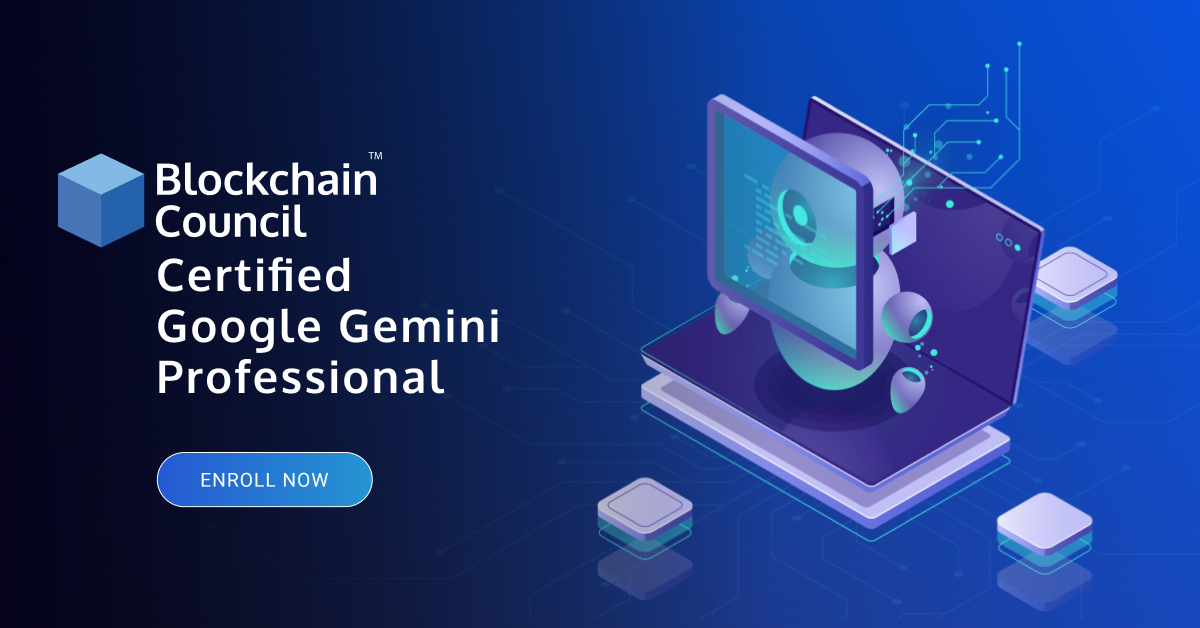
































































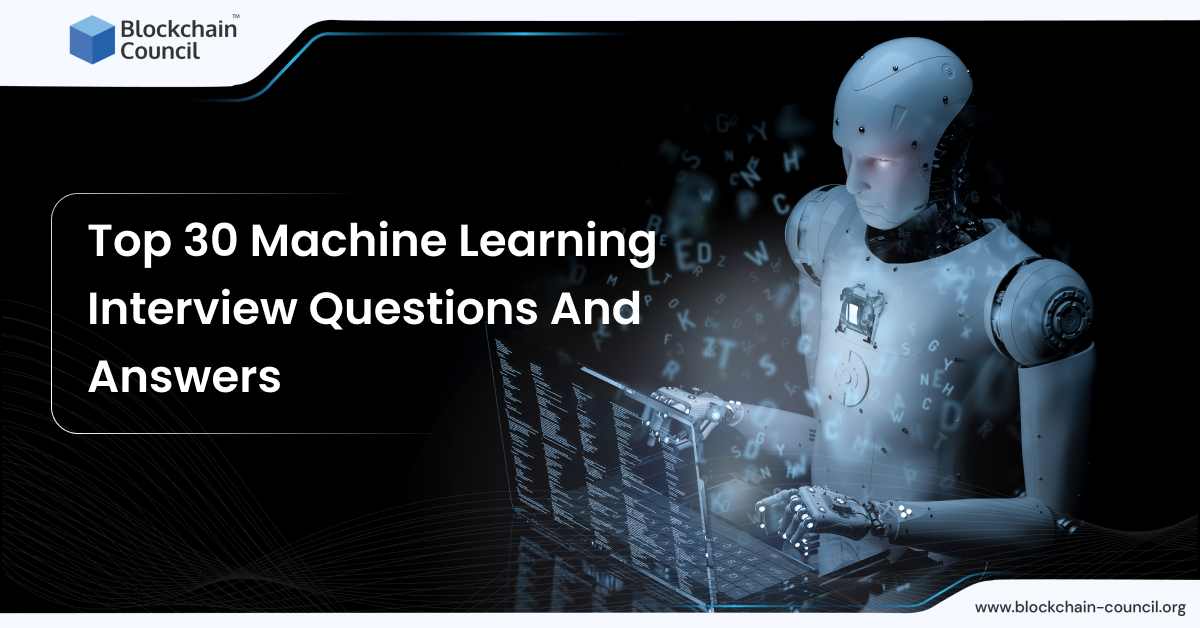







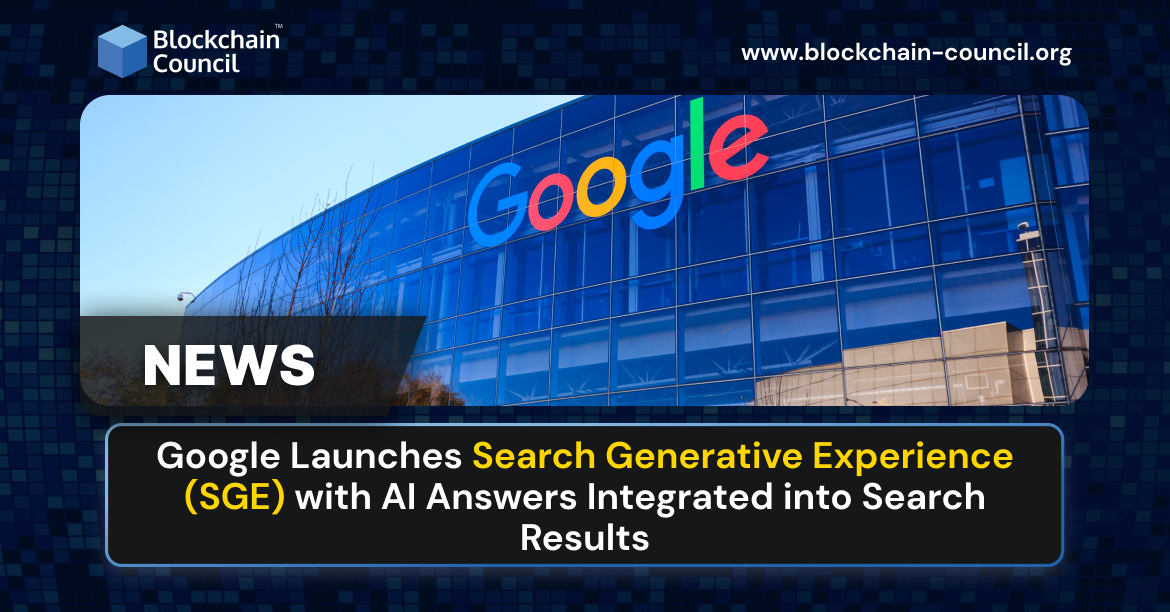



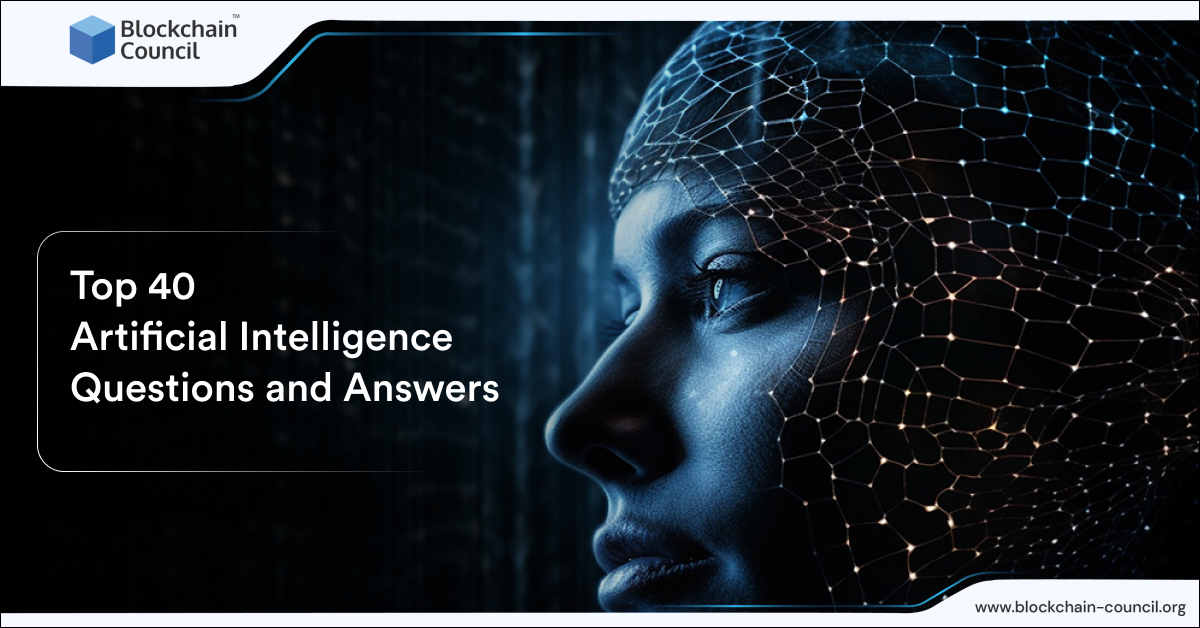






![Blockchain Development with AI [UPDATED]](https://www.blockchain-council.org/wp-content/uploads/2023/07/Blockchain-Development-with-AI.png)







![Benefits of Artificial Intelligence in Our Daily Lives [UPDATED]](https://www.blockchain-council.org/wp-content/uploads/2023/05/What-are-the-Benefits-of-Artificial-Intelligence-in-Our-Daily-lives_.jpg)














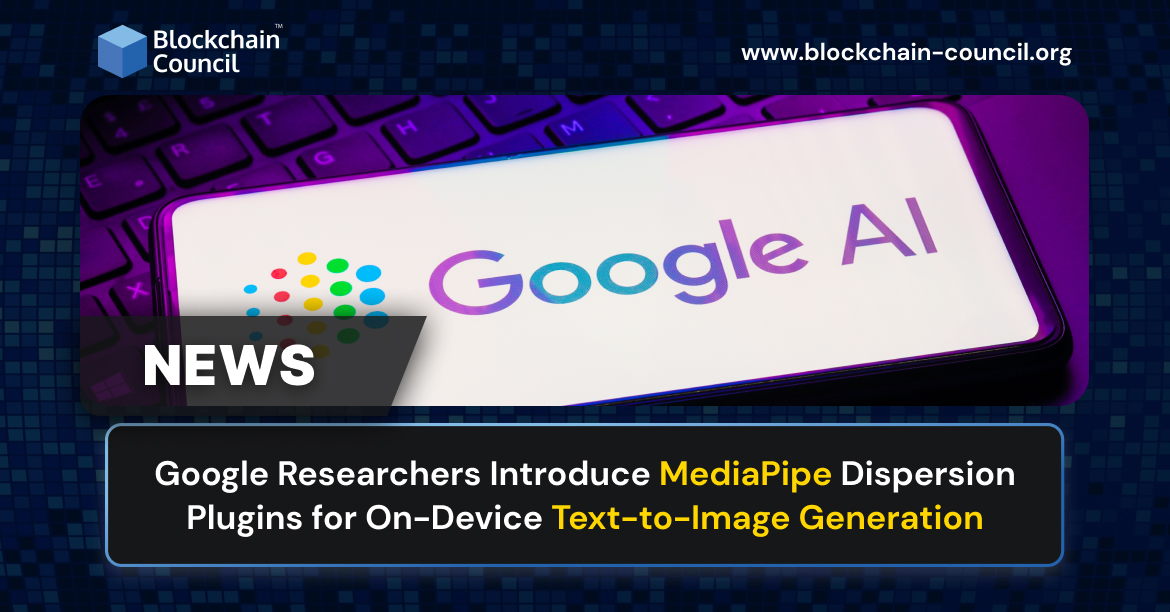










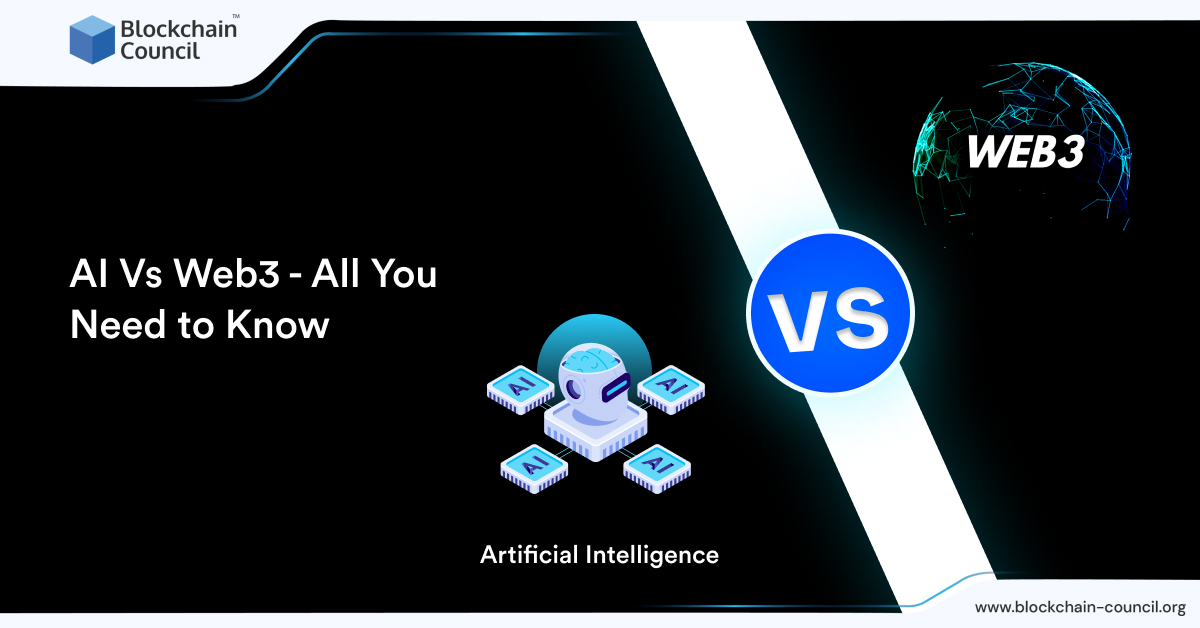
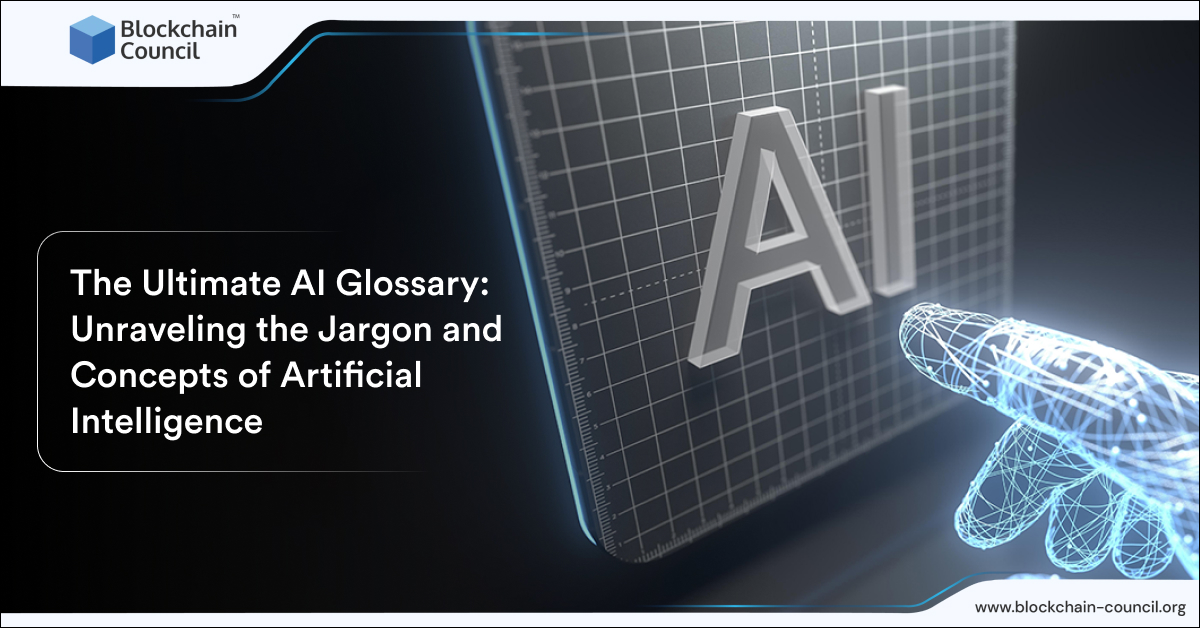












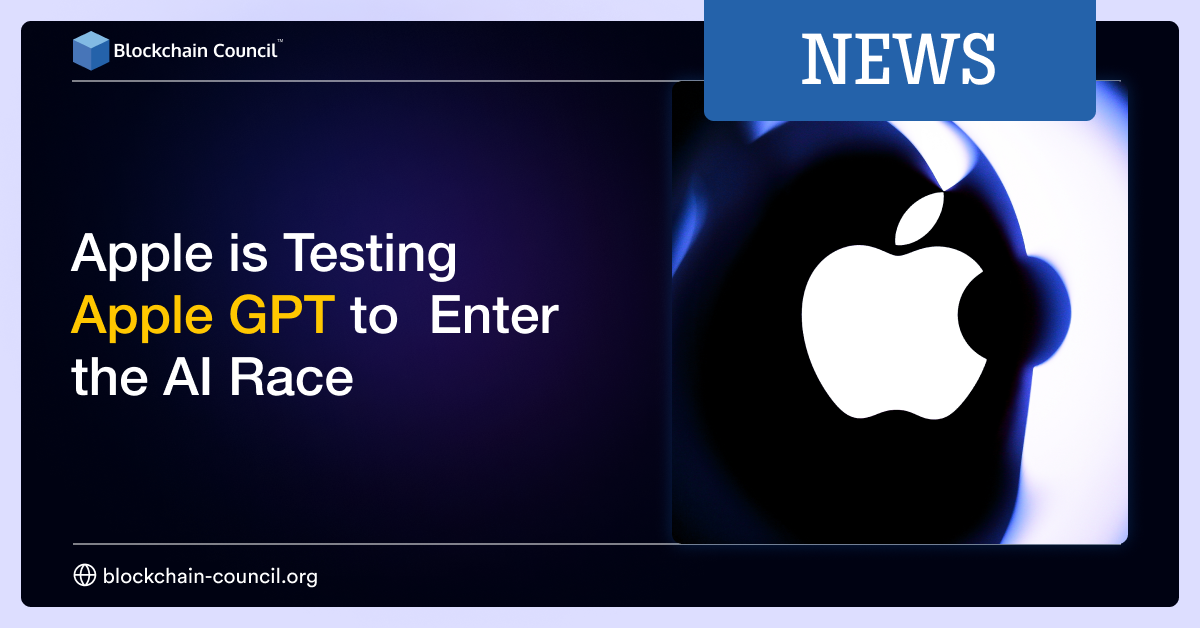







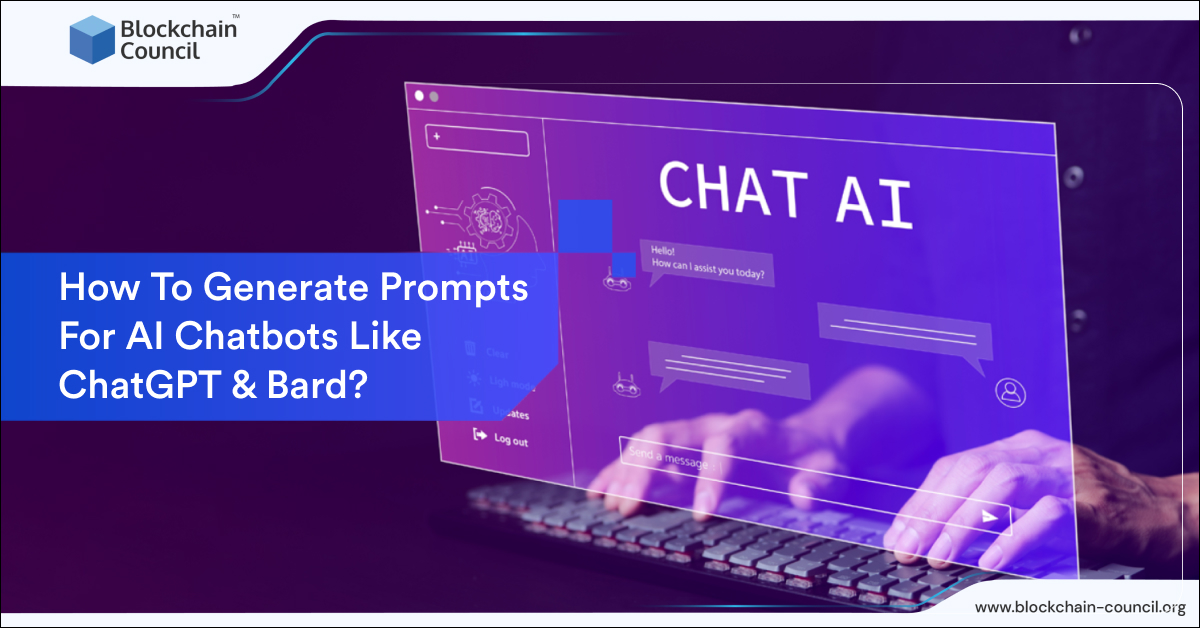
















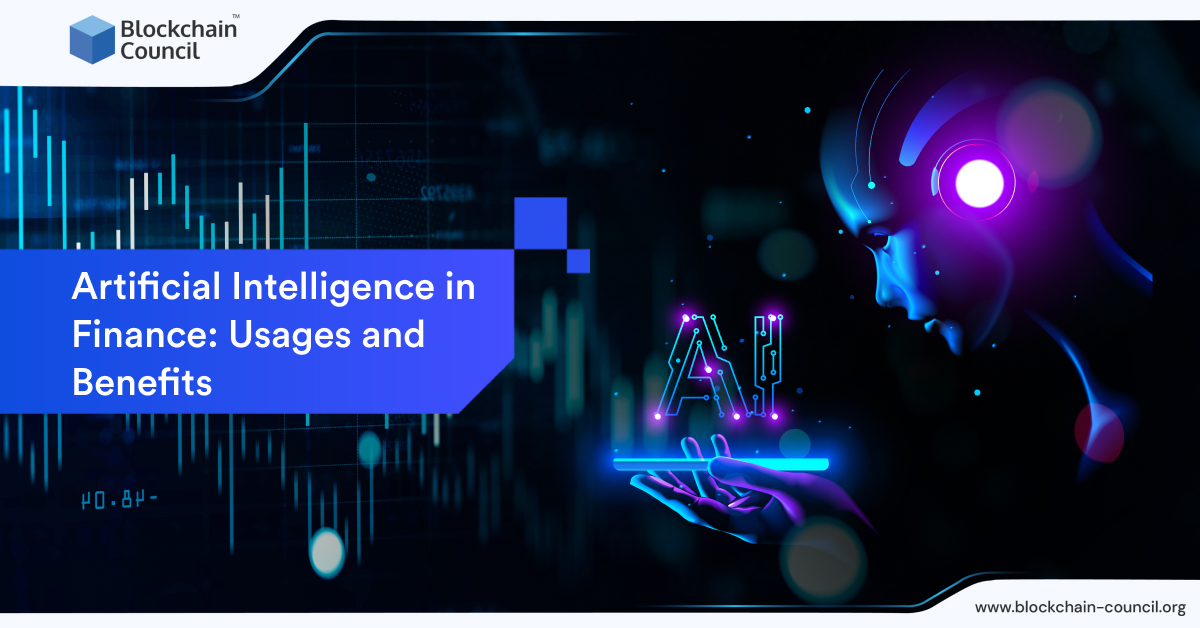



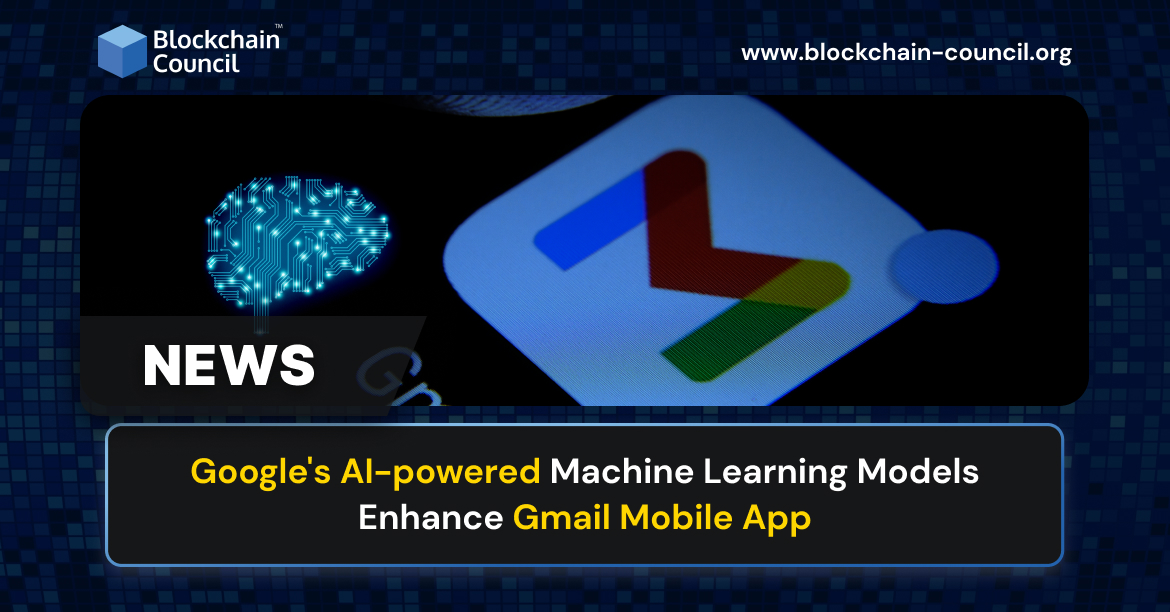



















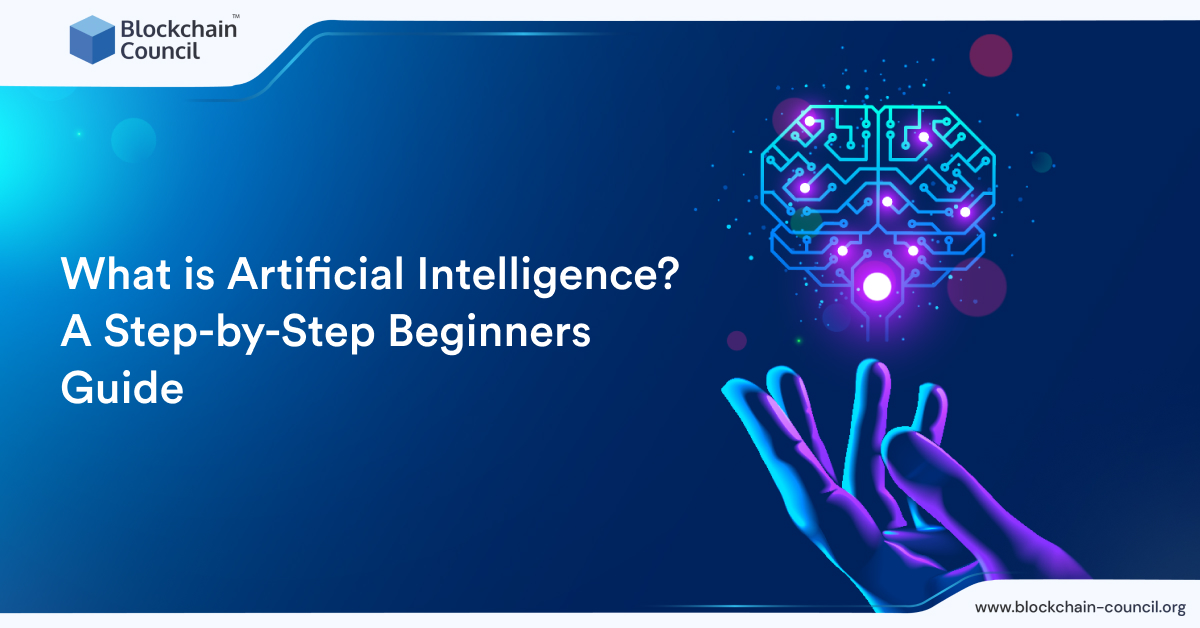



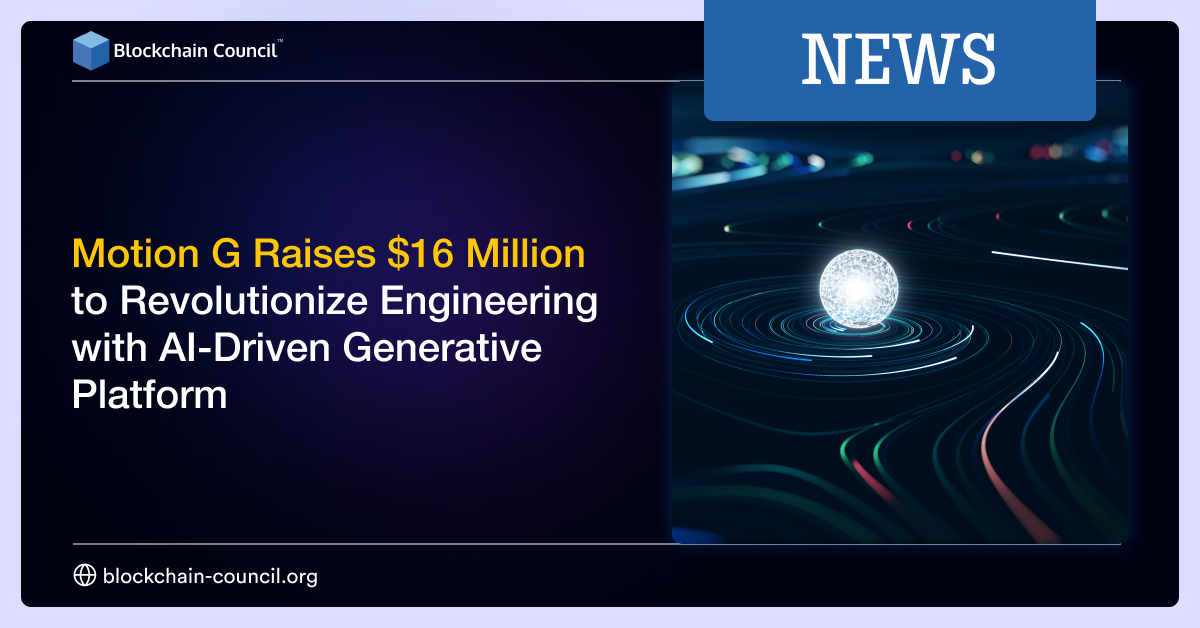
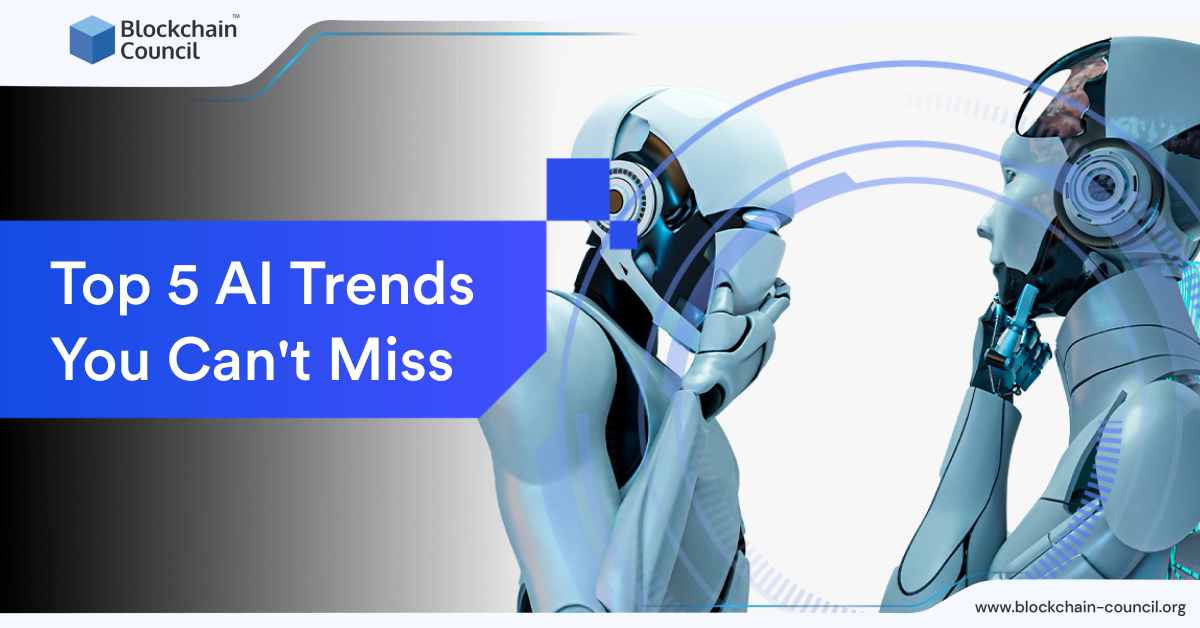

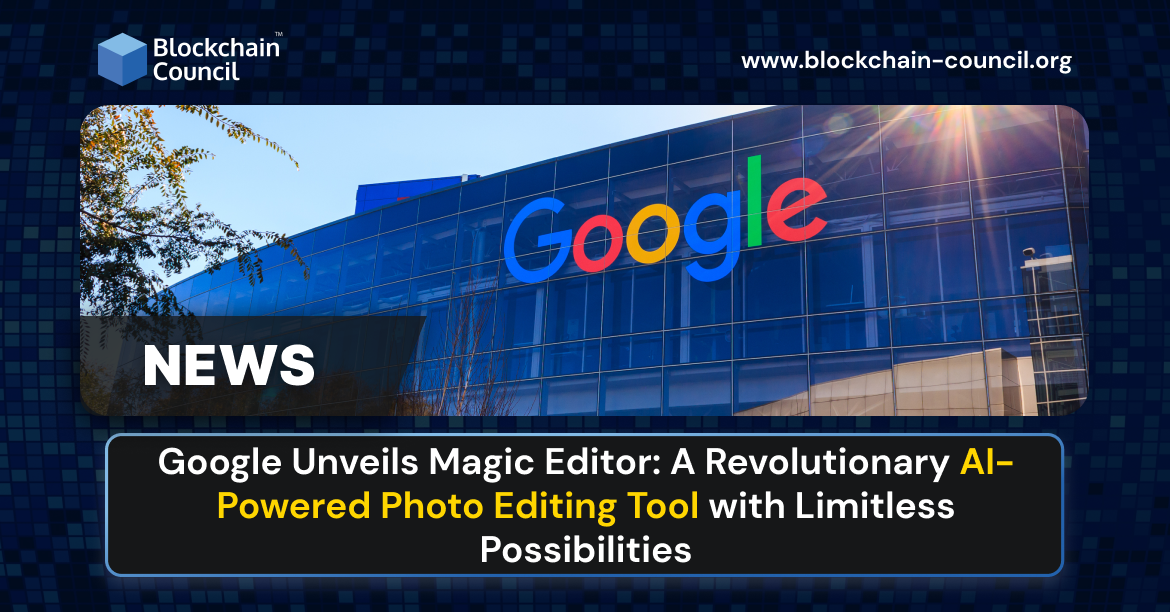
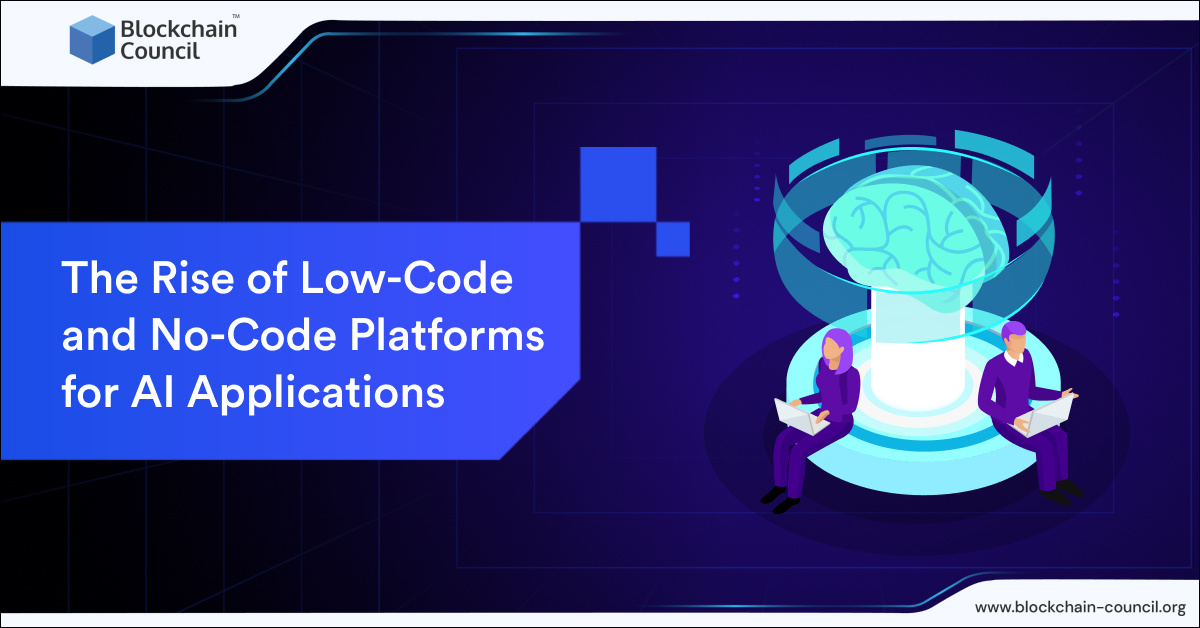

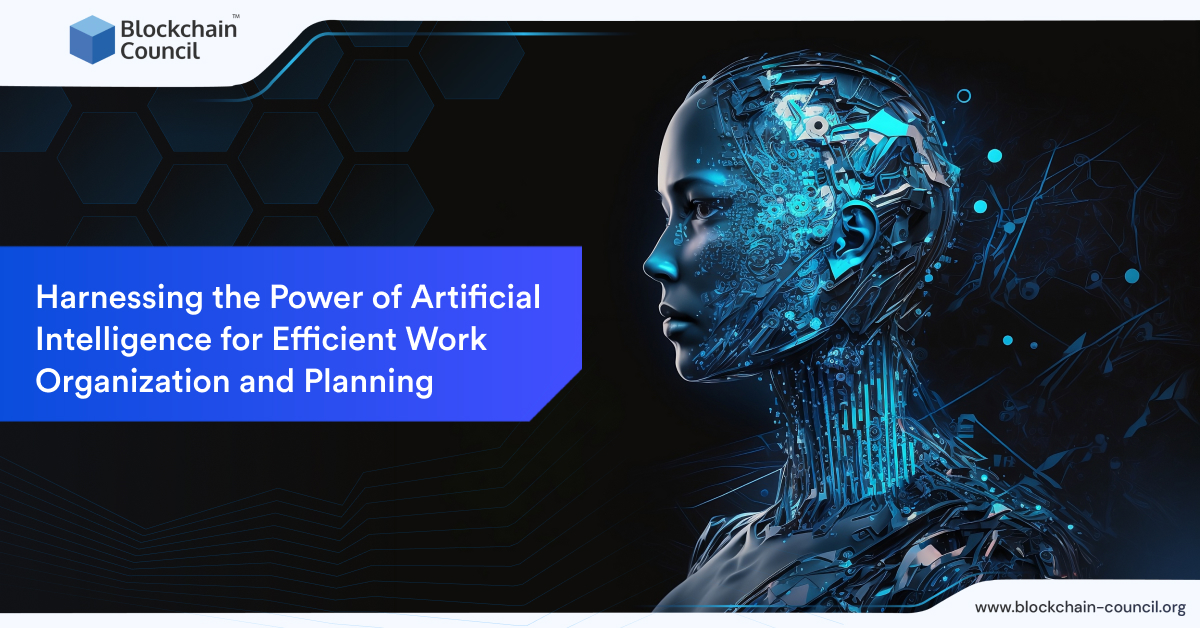



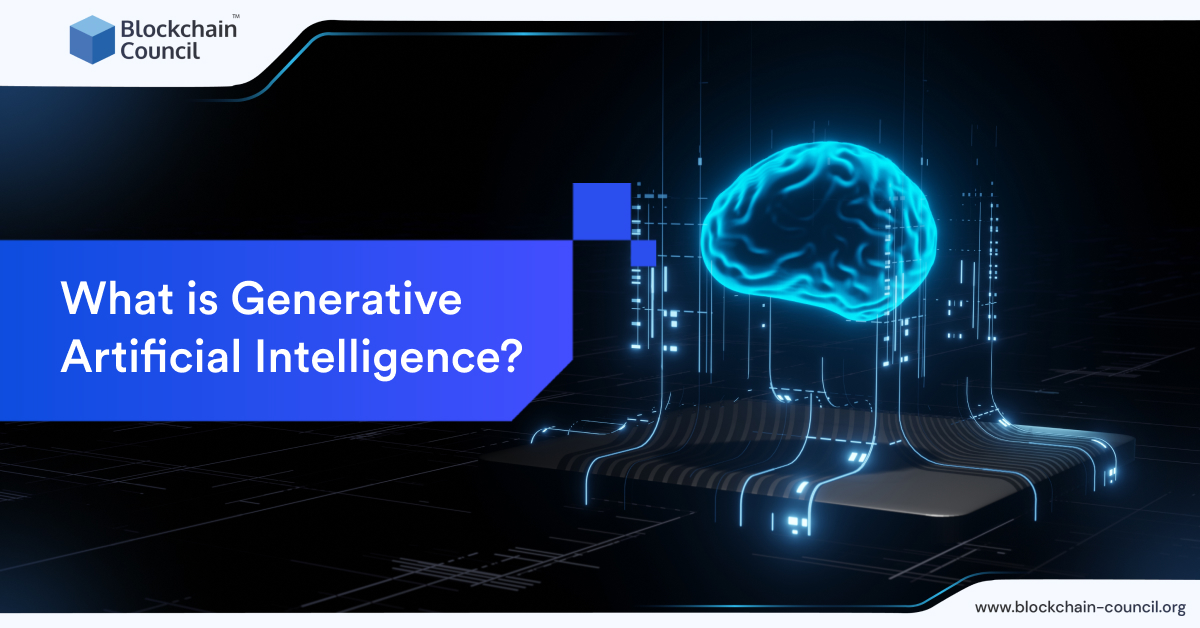


![Bing Chat Vs ChatGPT – All You Need to Know [UPDATED]](https://www.blockchain-council.org/wp-content/uploads/2023/05/Bing-Chat-Vs-ChatGPT-All-You-Need-to-Know.jpg)












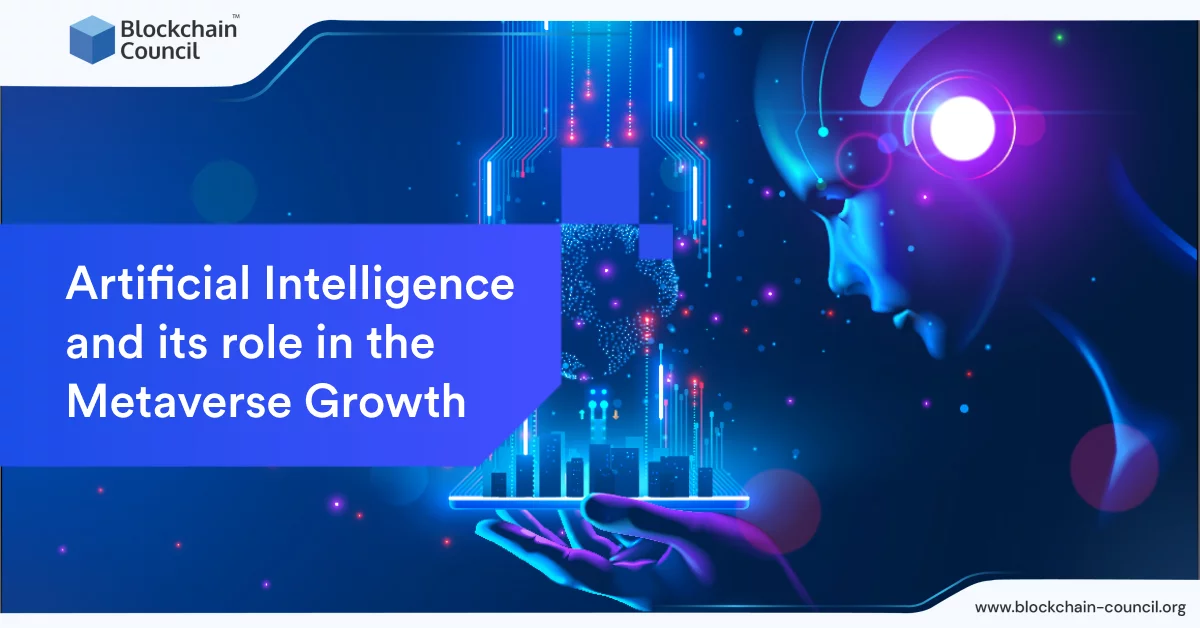









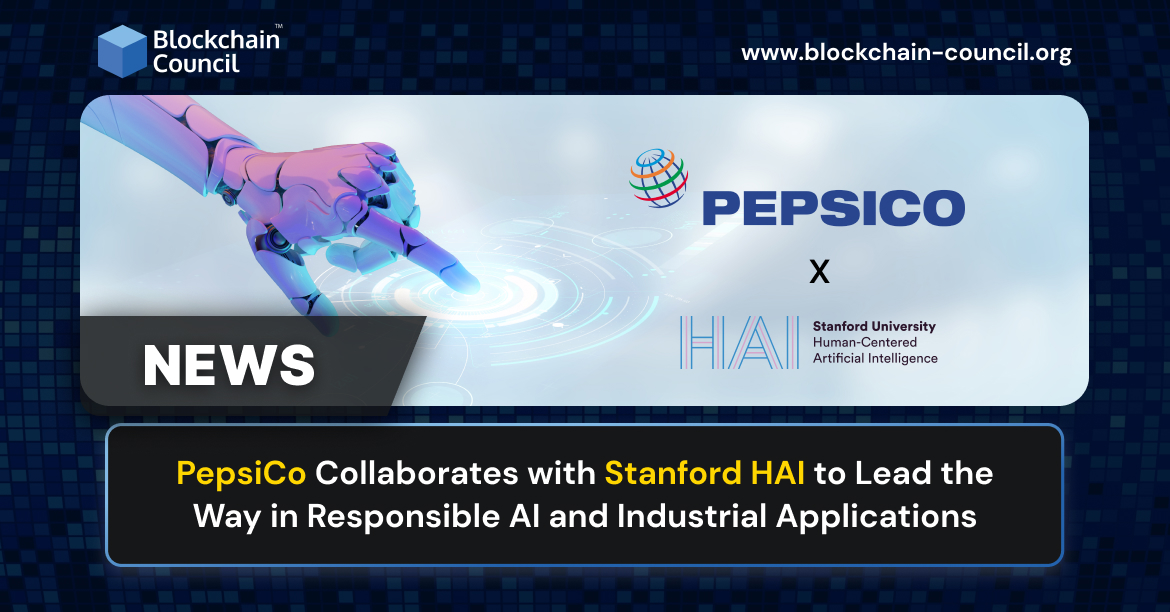





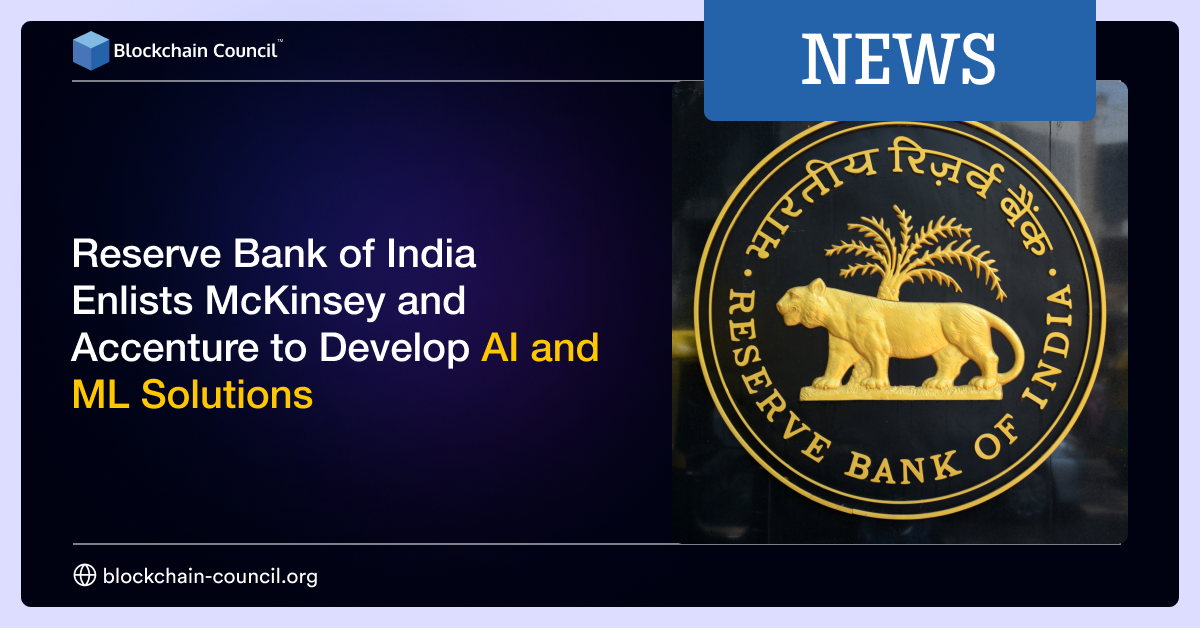






 Guides
Guides News
News Blockchain
Blockchain Cryptocurrency
& Digital Assets
Cryptocurrency
& Digital Assets Web3
Web3 Metaverse & NFTs
Metaverse & NFTs
